

Andrew Henderson
Founder of Nomad Capitalist and the world’s most sought-after expert on global citizenship.
ABOUT THE COMPANY
What we’re all about
MEET OUR TEAM
Meet our 80+ global team
We’re here to serve you
Your questions answered
TESTIMONIALS
Read our testimonials
Get free email updates

ACTION PLAN
Our flagship service for entrepreneurs and investors
ACTION PLAN ELITE
Create your Action Plan directly with the Mr. Henderson himself
CITIZENSHIP BY DESCENT
Claim a second passport based on familial connections
ALL SERVICES
Click here to see all our products and services
GOING OFFSHORE
Offshore Banking
Offshore Company
Offshore Trust
Offshore Gold Storage
Offshore For Americans
SECOND CITIZENSHIP
Second Passport
Citizenship By Investment
Citizenship By Ancestry
Dual Citizenship Benefits
EU Citizenship
SECOND RESIDENCE
Second Residence
Golden Visas
Residence By Investment
EU Residence
Tax Residence
FINANCE & INVESTMENTS
Tax Reduction
International Investment
Cryptocurrency
Foreign Real Estate
Asset Protection
NOMAD LIFESTYLE
Flag Theory
Lifestyle Design
Plan B Strategy
Hiring Overseas
Living In Eastern Europe
PASSPORT INDEX
Discover the world’s best passports to have in an ever-changing world
CITIZENSHIP MAP
Explore the citizenship options using our interactive citizenship map
Explore the tax details for countries using our interactive tax map
ALL RESEARCH
Click here to see all of our research and interactive tools
THE WORLD’S #1 OFFSHORE EVENT
Learn from our R&D playbook and meet like-minded people at our annual event.
NOMAD CAPITALIST THE BOOK
Andrew Henderson wrote the #1 best-selling book that redefines life as a diversified, global citizen in the 21st century… and how you can join the movement.
Birth Tourism: 31 Countries Giving Birthright Citizenship

Last updated October 28, 2020
Dateline: Kuala Lumpur, Malaysia
If you have spent any time on our blog, you probably already know that there are a number of ways to get a second passport , depending on how badly you want one.
We recently discussed 13 citizenships you could get rather easily by using one of the oldest tricks in the book: marrying a foreigner .
However, obtaining second citizenship for your children and future generations is just as important – if not more so.
For years, surveys such as The Best Places to Be Born , the Better Life Index , the Human Development Report , and many Quality o f Life Indices have chronicled where children are likely to have it best.
I recently discussed this in my article on tips for parents-to-be , suggesting that parents who apply our principles of international diversification practice something called “ birth tourism .”
If you live in the United States, you have probably heard the term “anchor baby” – when a non-citizen gives birth to a child in a country with birthright citizenship to gain residence and citizenship advantages – positioned in a bad light. However, there is nothing stopping you from using the same principle to give your kids a head start in other countries around the world.
Parents have a unique opportunity to choose the best country to give birth in. It’s an opportunity even western citizens should consider since even the “first world” United Kingdom failed to crack the top 20 places in which to give birth, falling behind the likes of Montenegro and Lithuania . The study concluded that children born in Britain suffer higher infant mortality rates than many emerging countries.
So, how can you take advantage of the quality of life in other countries to give your child a better future by securing them a second passport just by being born? In this article, we’ll tell you how and where you can take advantage of birthright citizenship to do just that, and maybe even earn a second passport for yourself in the process.
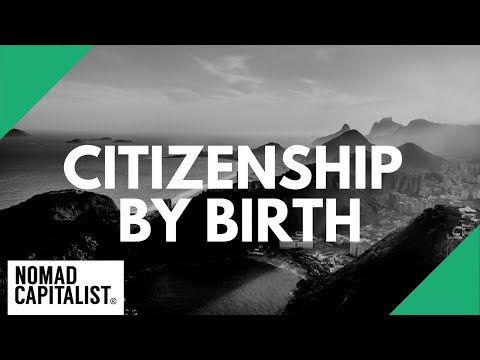
How Does Birth Tourism Work?
When it comes to determining a child’s citizenship at birth, countries usually apply one of two rights: jus soli (right of soil) or jus sanguinis (right of blood). Jus soli grants citizenship merely on the basis of being born “on the soil” of the country in question. Jus sanguinis determines the child’s citizenship based on the parents’ nationality.
Birth tourism is simple: give birth in a country that grants citizenship based on jus soli and provides benefits to all children born there. This will not only give your child a better qualify of life but also entitle them to a second passport immediately from birth. In many cases, parents of such children enjoy a faster naturalization timeline as well.
The process of “ jus soli ” is generally available to anyone who has a child within the territory of a country with birthright citizenship, even if they are a temporary resident or an illegal alien. The only people whose children do not qualify for instant citizenship are diplomats.
These countries offer what is called “ absolute jus soli ,” meaning that the biggest hurdle you’ll face in some countries is having to register your bundle of joy with the local authorities to secure their passport.
The United States and Canada are the only “first world countries” that offer unconditional citizenship to children born in the territory, although there are plenty of other excellent places that I would actually prefer to live in that offer this as well.
Here in Asia, Mainland Chinese parents often seek to give birth in Hong Kong to obtain the “right of abode” for their children. (Hong Kongers are Chinese citizens, but with special privileges to reside in Hong Kong.)
Of course, we know that the United States offers birthright citizenship for the same reasons that ancient Rome did: to increase the number of US tax-payers needed to pay off the country’s catastrophic debts.
Giving birth to a child in the United States is setting them up for a lifetime of taxes which they can’t even get out of without renouncing their citizenship. That means even opening a bank account for their college savings will require you to file paperwork with the US government.
What Countries Offer Birthright Citizenship?
For those who want to bestow their child with a second citizenship outside of the highly taxed western world, there are a number of places that offer “jus soli” or birthright of the soil.
Any child born within that country’s territory becomes a citizen at birth, and there are dozens of countries whose laws allow the practice. So, which countries automatically give a passport and citizenship to children born there, regardless of the nationality of the child’s parents?
Almost two decades ago, Ireland amended its constitution to end their practice as the last European country offering unconditional citizenship rights to children born to two foreign parents. Malta had amended theirs earlier, too. Other countries, such as Australia , have similarly tightened their laws.
But when you follow the birth tourism blueprint, you can forget about dual citizenship and give your child multiple citizenships .
Here is the full list of the best countries in which to give birth when seeking birth tourism options, excluding countries where a ban on the practice is currently underway.
- El Salvador
- St. Kitts and Nevis
- St. Vincent and the Grenadines
- Trinidad and Tobago
- United States
*For a child to become a Chilean citizen at birth, their parents must already have a temporary or permanent residence in Chile at the time of their birth.
**As of September 2020, Portugal is just a few formalities away from expanding its jus soli laws granting birthright citizenship to children born on Portuguese soil. Currently, children born in Portugal to foreign nationals can obtain citizenship at birth if at least one parent has been a resident for two years or more. The new law would reduce that timeline to one year.
This is an especially attractive change for Golden Visa investors in Portugal as they will now have the opportunity to bestow Portuguese citizenship on their children after just one year of residence.
The Best Birth Tourism Countries

Out of that list are a few gems…
Panama, Brazil, Mexico, and Argentina are particularly noted for their quality medical care , including for world-class facilities that make giving birth there not only easy but much cheaper than any country in the West.
Two of the countries — Dominica and St. Kitts and Nevis — sell economic citizenships for six-figure price tags and even charge for your children to receive a passport, as well. Other countries that used to offer citizenship by investment programs, such as Belize, are also attractive birth tourism options.
Similar to how US persons complain of illegal immigrants getting access to welfare benefits for their US citizen child, several countries on this list offer the ability to fast track your own naturalization as the parent of a local child.
In Brazil, the wait is only one year, prompting my friend Neil Strauss to suggest “knocking up a Brazilian girl” in his book Emergency . But in all seriousness, even foreigners on tourist visas can give birth on Brazilian soil, earning their child immediate Brazilian citizenship and a one-year timeline to their own naturalization. You can learn more about Brazil’s birthright citizenship laws here .
Most other countries will fast track the parents’ naturalization so that you will be able to get citizenship in two to seven years.
And surprisingly, some of these countries offer remarkably good passports . Holders of passports from Argentina, Costa Rica, Mexico , Panama , St. Kitts and Nevis, Uruguay , and Venezuela enjoy visa-free travel to all of Central and South America as well Europe’s borderless Schengen Area and almost every country in Europe.
Some even offer travel privileges to countries that westerners do not have visa-free access to, like Russia.
Guatemala passport holders enjoy all of these privileges save the right to travel to Mexico. Nicaragua citizens enjoy Schengen area access, but more limited options within the Americas. And even some of the lesser passports here allow for visa-free travel of some sort to the UK, Ireland, Malaysia, and Singapore.
For someone interested in raising their family in the world’s emerging markets, the Peruvian passport allows for more visa-free travel to Southeast Asia and South American countries than most “first world” passports.
Outside of Canada and Chile , none of these citizenships will allow your child to visit the United States visa-free. But if you’re reading this, you might actually view that as an added benefit rather than a detriment.
Keeping your child in a growing, more laissez-faire environment is the best way to make the most of his or her birth tourism citizenship.
Be careful that you have the most up-to-date information before giving birth overseas, as a number of countries have ended their policy of giving citizenship based on birthplace; these include Australia, most recently, as well as New Zealand, Ireland, France, Malta, the Dominican Republic (which led to tens of thousands of deportations ), and India.
Of course, only you can determine how far you want to take the second citizenship and birth tourism game in an effort to bestow as many nationalities on your children as possible.
And if you happen to be pregnant now, you could always book your hospital stay and join us for one of our upcoming events on the beach.
GET ACTIONABLE TIPS FOR REDUCING TAXES AND BUILDING FREEDOM OVERSEAS
Sign up for our Weekly Rundown packed with hand-picked insights on global citizenship, offshore tax planning, and new places to diversify.
Are you a US citizen?
YOU MAY ALSO LIKE

How to Get Serbian Citizenship by Exception
What do Johnny Depp, Steven Seagal, and Ralph Fiennes have in common? Well, apart from the...

How Does Italy’s ‘La Dolce Visa’, Work?
How do you even begin to explain the charm of Italy for expats? Italy's attractions include...
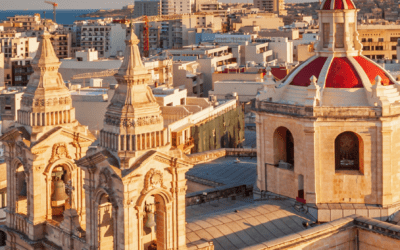
Malta’s Permanent Residence Program: The Ultimate Guide
Arriving in Malta at the break of dawn, the first glimpse of the island emerges from the quiet...
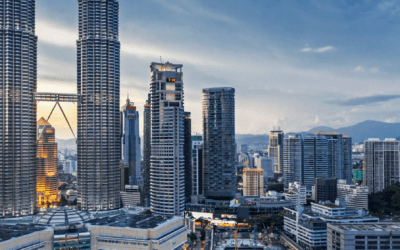
How to Pay Zero or Low Taxes in Malaysia (Territorial Tax)
Malaysia is beautiful, but don't just take our word for it. It's been officially recognised as the...
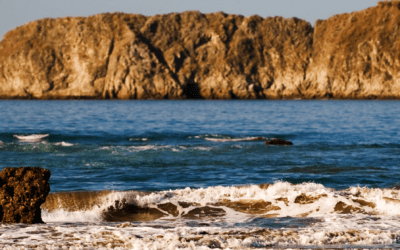
How to Pay Zero or Low Taxes in Costa Rica (Territorial Tax)
Costa Rica offers a stable political climate, a strong expat community, and good infrastructure....

How to Pay Zero or Low Taxes in Panama (Territorial Tax)
You've probably heard lots of rumors, half-truths, and downright falsehoods about how paying zero...
Get the Right Passport for You
We’ve helped our clients obtain 28 different country’s citizenships, from often-overlooked ancestry programs, to fast-tracked investment options, and even exclusive programs for HNWIs. Don’t limit yourself; let Nomad Capitalist’s unbiased approach help you find the best option.
What do you want to accomplish?
Let us know your goal and we will tell you how we can help you based on your details.
REDUCE TAXES OFFSHORE
CREATE A GLOBAL PLAN B
DIVERSIFY AND PROTECT WEALTH

UNITED STATES

UNITED KINGDOM

EU COUNTRIES

Tax Amount ($US Dollars)
POLITICAL INSTABILITY
ECONOMIC INSTABILITY
MISSED OPPORTUNITIES
TRAVEL RESTRICTIONS
HIGH TAX LIABILITIES
RISK MANAGEMENT
MARKET PROTECTION
WEALTH PRESERVATION
OPPORTUNITY CAPITALIZATION
ESTATE PLANNING
Email Address
We handle your data according to our Privacy Policy . By entering your email address you grant us permission to send you the report and follow up emails later.
- International edition
- Australia edition
- Europe edition

‘A lot of these women had no idea what they got into’: inside the world of birth tourism
A new documentary follows Chinese women who travel to the US to give birth so their children can have citizenship
I t started a decade ago, when Leslie Tai, who lives outside San Francisco, heard from a woman she’d met in Beijing and who told her that she was staying for a few months in Los Angeles. Tai’s friend was evasive about the purpose of her visit, until the pair finally had a video call and Tai watched her friend oil a round belly on camera. “She said, ‘I have a surprise for you,’” Tai recalled. “‘I’m having an American baby.’” Tai, who knew that her friend came from a poor family and was dating a wealthy older artist in China, asked if he had friends in southern California. “And she was like, ‘No, honey, you don’t need friends to do what I’m doing.’”
She was part of the birth tourism industry, which boomed during the Obama years, when scores of pregnant Chinese women of means invested in package deals that cost anywhere from $30,000 to $100,000 and granted buyers the ability to fly across the world and stay for three months at a facility that catered to expectant mothers looking to score US citizenships for their children or skirt the one-child policy that was the law in China until 2015.
Tai, a Chinese American documentary film-maker, wasted no time embedding in the group home where her friend was waiting out the final days of her pregnancy, alongside a handful of other expectant mothers. “I got kind of obsessed with this idea of how on the outside, it’s just nondescript suburban tract housing, with palm trees everywhere, but then behind closed doors there’s this whole world with multiple families living in close quarters and all in this crazy intense situation of waiting to have a baby,” she said.
Securing subjects’ permission was not easy for Tai. “I started asking my aunties and uncles like, do you know anybody who is involved in this industry? They were all like, yeah, actually, my cleaner, or our nanny from when our kids were children ended up working in one of these maternity hotels,” she recalled. Tracking down subjects and winning over their trust took an enormous amount of care and strategy. “Even though what they were doing was not illegal, they had reservations, so it was not like I came in like guns blazing.” Tai’s English fluency proved a valuable resource as she pursued mothers-to-be, nannies, drivers and cooks to grant entry to their private world and anchor the vignettes in her film. “I made myself of service because actually, when they saw me, they were like, ‘Oh my God, you speak English. Can you help me call PG&E?’” She had given similar help to her friend, who did not speak English, in the delivery room.
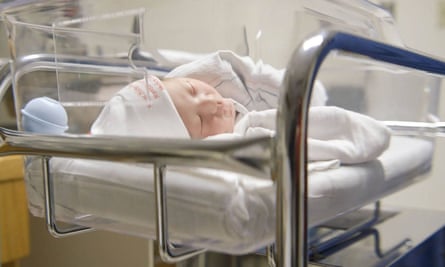
Nearly 10 years in the making, Tai’s entrancing and heartrending film How to Have an American Baby provides viewers insider access to a phenomenon that took place behind closed doors and on Chinese websites where brokers offered pregnant women package deals as if they were cruise holidays. Money-hungry operators offered help obtaining visas and lining up rooms at specialized facilities. There were enormous industrial maternity hotels, as well as private Beverly Hills homes and boutique group homes where up to five women at a time waited out their births and holed up for the 30-day postpartum quarantine that is a Chinese tradition. Then, more often than not, they returned to China.
“By and large, the majority of the women that were coming were simply coming to evade the one-child policy,” Tai said. Some, though, were mistresses, as Chinese law did not allow unmarried mothers to give birth in public hospitals until earlier this year. Sales agents knew how to tap into maternal anxieties, playing up the supposed advantages of US citizenship. “There’s a lot of misinformation that the customers are receiving,” Tai said. “They think that there’s universal healthcare. They think that there’s universal education. It’s sold as a really good investment, but they’ve been lied to.” Babies born in the US have the right to declare their American citizenship at age 18, and apply for green cards for their families when they turn 21. “There was a sentiment of: who knows what the world is going to look like in 18 years? If China goes to hell, what if America goes to hell, whatever, they have two passports.”
Tai’s film is less concerned with policy than offering a textured portrait of the day-to-day, minute-to-minute experience that the mothers went through. The exteriors are mostly shot at night on suburban streets of southern California and the interiors sit with women bathing their babies or microwaving cups of tea while they wait to go into labor. A meditative quality pervades the work, which weaves several vignettes together into a broader portrait of women navigating a terrifying life phase in a strange land. “A lot of these women had no idea what they got into,” Tai said. “It’s almost like they were sold on the pretty pictures of this vacation and then when they come here, they realize: ‘My family’s not here, and I’m having a baby. Oh, my God, I’m sequestered with a bunch of pregnant women. Plus there’s all the drama living in the suburbs. It’s like Real Housewives from hell.”
While many of the visitors enjoyed daily meal deliveries and shopping excursions, they were surrounded by people who saw them as financial marks. The doctors in the film offer all-cash birthing options (vaginal for $3,000 or caesarean for $5,000) with the tenderness of night market vendors hawking ripoff handbags. Tai captured a maternity hotel worker saying about the residents: “If you become too friendly they will use you. The more you give them, the more they complain.”
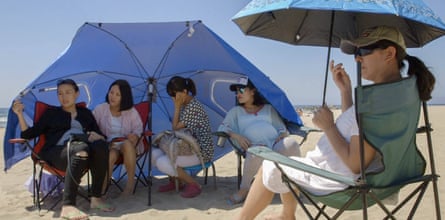
The birth tourism world underwent major upheaval over the course of filming and editing, to the point where Tai said her film was “like a time capsule”. With the rise of Trump and the travel restrictions around Covid, and anti-Chinese and anti-American sentiment flying in both directions, the phenomenon has come to a standstill.
Tai had her own changes as well, namely, the birth of a baby this past January, a few weeks before the world premiere of her film at a festival. “I definitely took a lot of lessons from watching all these births, like making sure I was set up with the right support,” she said.
And now she is in what she called “double postpartum mode”, watching both her baby and film find their footing in the world. While the film has a jaw-dropping concept at its core, the bulk of the footage focuses on the mundanity and emotion that color the days leading up to and following childbirth, as well as the terror and ecstasy of labor itself. (There is a birthing scene more honest and beautifully gruesome than any video they’ll show you at birth class.) Tai’s ambition for her movie is strikingly tender. “I want to fight for the moving image that allows you to really sink into the humanity of the people, regardless, and even in spite of, how controversial the situation is,” she said.
How to Have an American Baby airs on PBS on 11 December
- Documentary
- US television
Most viewed
'All about the money': How women travelling to Canada to give birth could strain the health-care system
Birth tourism leads to complaints of compromised care at b.c. hospital.

Social Sharing
Women travelling to Canada to give birth to babies who will automatically become Canadian citizens are prompting concerns about the strain they may be putting on the health-care system, The Fifth Estate has found.
Canada is one of fewer than three dozen countries that follow the practice of citizenship based on birthplace, regardless of parents' nationality or status.
At one British Columbia hospital with a high concentration of such deliveries, complaints have arisen that the influx of these non-resident patients — also known as birth tourists — has led to compromised care for local mothers-to-be and struggles for nursing staff.
Some of these patients fail to pay hospital and doctors bills, leaving taxpayers and individual care providers on the hook.
"Most of them, they get the Canadian passport, and then they leave the country," said Dr. Mudaffer Al-Mudaffer, a B.C. pediatrician and neonatologist who sees babies of non-residents when they need critical care. "It affects the integrity of the fairness of the health system."
No statistics are available regarding how many people are travelling to Canada specifically to ensure their child is born here and will have a Canadian passport.
But figures from the Canadian Institute for Health Information and several Quebec hospitals indicate there were about 5,000 non-resident births across the country in 2018, an increase of nearly 15 per cent over the previous year.

In the fall of 2019, Cathy Shi arrived in Richmond, B.C., from Shandong, on China's east coast, to give birth to her third child. She said through a translator that she wanted her unborn child to have more opportunities.
"My concern is about their education, such as going to university. If the kid wants to live in Canada, it would be convenient for them if they're born here."
Handful of hospitals
At this point, the practice of birth tourism appears to be concentrated in a handful of hospitals in Quebec, Ontario and British Columbia.
At the Richmond Hospital, south of Vancouver, non-residents make up nearly a quarter of all births, according to records obtained from Vancouver Coastal Health, the health authority which runs the hospital. In many ways, that hospital can be seen as a test case for how this issue could play out elsewhere as numbers continue to climb.
The health authority declined a request for an interview with The Fifth Estate and issued a warning directing its staff not to speak to the media.
Despite that, four current and two retired nurses shared their concerns, requesting that their identities be protected.
- Watch "Passport babies" on The Fifth Estate on CBC-TV Sunday at 9 p.m.
Since 2013/14, the number of non-resident births has tripled at the hospital. The patients — many from China — pay privately for their care, often in cash, may not speak English and are unfamiliar with the Canadian health-care system. The nurses who spoke to The Fifth Estate say the influx has led to increased workloads and has compromised care.

"There are times when ... the people living here don't get the service that they need," one nurse said.
When the unit was very busy, one nurse said services like prenatal tests to check the baby's health, labour inductions and other tests to check fetal and maternal risk factors would be delayed or cancelled.
"We would often have to decide whose need was greatest and abandon the rest for the next day where we would face the same situation again," she said.
"Our normal scheduled or add-on C-sections lie here all day and then they take the IV out, we send them home and say come back tomorrow. A private pay never goes home — she gets her C-section that day," said another nurse.
"She will be fit in somewhere because nobody wants to lose that $5,000. But our normal people are lying there all day, no food or drink, waiting and nobody's interested in moving them."
Some hospitals, like Sunnybrook Health Sciences Centre in Toronto, have taken steps to limit the number of non-resident births in order to prioritize residents of their own communities. That hospital says it won't treat non-residents patients without Ontario Health Insurance Plan coverage.
- Ottawa probes birth tourism as new data shows higher non-resident birth rates
'It's fraudulent': Former immigration official says action needed on 'passport babies'
When asked in an email why the Richmond Hospital doesn't have a similar policy, Carrie Stefanson, a public affairs representative with Vancouver Coastal Health, said: "VCH cannot speak for other hospitals or health authorities. VCH will never deny urgent and emergent care based on ability to pay or where a patient is from."
The hospital requests deposits for privately paid births: $10,000 for a vaginal birth and $16,000 for a caesarean. More than $18 million has been invoiced for non-resident births since 2017, according to data released through freedom of information by Vancouver Coastal Health.
Nursing staff say they have not seen this money go into easing their workloads.
"The amount of money that's coming into Richmond from the private pay, it doesn't make our staffing better," said one nurse.
Their union says that is a problem.

"I certainly think adding additional patients into a health-care system that isn't staffed appropriately, isn't funded appropriately, is causing strain," said Christine Sorensen, president of the BC Nurses' Union.
She said the union has regularly heard complaints from nurses at Richmond Hospital but they have not filed a formal complaint with the hospital.
The health authority declined to answer a question about how it has responded to complaints from nursing staff.
Financial incentives within the medical system
Two doctors at the Richmond Hospital have delivered 1,300 of the 2,206 babies born to non-residents there since 2014, according to documents released through freedom of information.
While the health authority will not disclose their names, insiders and birth tourism company representatives say Dr. Xin-Yong Wang and Dr. Brenda Tan, two Mandarin-speaking family doctors, see the majority of these patients for prenatal care and delivery.
Both appear on multiple websites of companies advertising services such as assistance with immigration, travel and housing to women looking to come to Canada to give birth.
Wang said the companies do not have permission to use his name.
Tan did not respond to interview requests and a list of questions sent to her.

Wang and Tan billed the province $272,198.50 and $428,456.17 respectively in the 2018/2019 fiscal year, according to data publicly available through the province. Those billings do not include earnings from non-resident patients because they pay privately.
There are no limits on what physicians can charge outside the public system in British Columbia, but information from birth tourism company websites suggests that these doctors earn at least $100 per prenatal visit and more than $2,500 for a delivery, several times more than could be billed through the public system for the same services.
In an interview, Wang declined to respond to questions about how much he was earning from birth tourism but said he was not motivated financially to take on these patients.
"It's like a dessert — occasional patients like this is fine, and it's pretty financially rewarding … they are a small percentage of our overall income."
Nurses who spoke to The Fifth Estate said the financial incentives within the health-care system are a problem.
"It is all about the money. If there was no financial income for the hospital or physicians, the private pay would have been out of the door a long time ago," said one nurse.
Unpaid bills
While these births are bringing in money, bills owed to both health authorities and individual doctors are not always paid.
According to documents released by Vancouver Coastal Health, more than $2 million is outstanding as a result of non-resident births since 2017 at the Richmond Hospital alone. This does not include any debt that has been written off.
Births at the Richmond Hospital represent 11 per cent of overall non-resident births outside Quebec, according to 2018 data from the Canadian Institute for Health Information.
No national financial data exists on how much revenue is outstanding as a result of non-resident hospital bills across the country.
But some say the health-care system and Canadian taxpayers are losing out.
Al-Mudaffer said having an uninsured baby in neonatal intensive care can cost $10,000 a day just for the hospital bed, not including doctors' fees.
Watch Dr. Al-Mudaffer express concerns about birth tourism:

Dr. Mudaffer Al-Mudaffer
He said he's seen large bills for families with babies requiring multiple nights and even weeks in the NICU.
"You can easily acquire a bill of $100,000 to pay the health authority, and that's why they can't pay it, you know? And they leave the country without paying," said Al-Mudaffer.
He said he has seen hundreds of thousands of dollars in bills go unpaid at the Royal Columbian Hospital where he works, but Fraser Health, which runs that hospital, said it could not confirm this amount.
The Fifth Estate requested provincial numbers on unpaid bills from the British Columbia government but was told these numbers were not tracked provincially.
"Obviously if any bill is unpaid, I'm concerned about that because that's money that we could and should be spending on something else or saving the health-care system so of course we're concerned about it," said B.C. Health Minister Adrian Dix.
Even with little formal research to examine the practical implications of a growing number of non-resident births on the Canadian health-care system, Dix said "we are handling that situation.
"It's two per cent … of total births in British Columbia, so it's an issue but there are other issues."

But it's not only hospital fees going unpaid. Al-Mudaffer said when he sees birth tourists, he only gets paid three out of 10 times.
He is not alone. Dr. Kathleen Ross, president of Doctors of B.C., has personally been affected by unpaid bills and has called for a national conversation on the issue.
"Our federal government needs to find a way to disincentive people coming to the country to have access to citizenship and to our health-care support," she said.
Federal research planned
Marco Mendicino, the newly appointed minister of immigration, refugees and citizenship, declined an interview with The Fifth Estate .
But the department wrote that while "statistics indicate that birth tourism is not widespread, the Government of Canada recognizes the need to better understand this practice."
It said it has started work with the Canadian Institute for Health Information and Statistics Canada to integrate health and immigration data that would allow for a better understanding of the practice of birth tourism by looking at visitor visas and births.
Immigration, Refugees and Citizenship Canada anticipates results from this research will be available in the spring.
Cathy Shi said she hasn't thought much about criticism of birth tourism and isn't receiving any government benefits here.
"We may come here often for travelling around, living or even investing. People are not just looking for status by having a baby here. They will have established a connection to Canada and later on some may apply to immigrate."
For more information, on this story please contact Annie Burns-Pieper [email protected]
ABOUT THE AUTHOR

Annie Burns-Pieper is a freelance investigative reporter and producer. She has a particular interest in themes of gender equality, public safety and health.
- @Aburnspieper
Related Stories
- Public servants, retirees travelling and working overseas wait months for reimbursement
- Men switched at birth to get formal apology from Manitoba government

What is birth tourism and is it legal?
Disclaimer: Some posts on Tourism Teacher may contain affiliate links. If you appreciate this content, you can show your support by making a purchase through these links or by buying me a coffee . Thank you for your support!
Birth tourism isn’t a term we hear everyday, but it is in actual fact a real thing! Want to learn all about it? Read on…
What is birth tourism?
Anchor babies, future life improvement, two-child policy, right of abode, birth tourism scrutiny in the us, changing citizenship laws, jus sanguinis , birth tourism in north america, birth tourism in hong kong, birth tourism- further reading.
As the name suggests, birth tourism is the action of travelling to a different destination for the purpose of giving birth. There are various reasons as to why pregnant people decide to take this course of action, which I will go into below. It is not a new phenomenon, nor is it something which people are particularly secretive about when they engage in it. It is more common in the US, Canada and Mexico as these countries famously offer birthright citizenship.
It is worth nothing that birth tourism is completely unrelated to the concept of a babymoon, which you can read about here !

Why does birth tourism happen?
So, why does birth tourism exist? One reason is that people may want to give birth where it’s free or at least much cheaper than their home country. They also may feel like other countries are able to provide better (and/or safer) medical care during and immediately after the birth. Childbirth is a terrifying process for many, and people want to feel as confident as possible as they bring a new life into the world.
But the main reason for birth tourism is citizenship purposes. People will travel to a different country to give birth there so that the child has birthright citizenship, also known as jus soli. There are many reasons why someone may want their child to have citizenship in a different country…
An anchor baby is a child born in this country for the purpose of helping their parents obtain permanent residency in this country. Due to the baby having birthright citizenship, it should then be easier for the parents and other family members such as siblings to gain legal and permanent residency. This term is considered to be offensive by some. It often comes into play during immigration arguments, especially in the US.
Canadians use the term ‘passport baby’ in the same way.
Another reason for giving birth to a child in a foreign country, therefore giving them birthright citizenship, is in order to ensure they have access to solid healthcare and a good education in the future. This is to benefit the child themselves.
In the past, people have engaged in birth tourism to get around the Chinese two-child policy – and the one-child policy before it. China now actually has a three-child policy, due to falling birth rates (presumably because of the two-child policy in place). Iran, Singapore and Vietnam have also all had two-child policies in place at one time or another. Birth tourism was a way of circumventing this issue.
This relates specifically to Chinese citizens travelling to Hong Kong to give birth. Doing so gives the child ‘right of abode’ – also known as permanent residence – to live and work in Hong Kong in the future. They would have all the same rights as anyone else born in Hong Kong. This phenomenon has led to tensions between the people of China and the people of Hong Kong, with the latter even taking to the streets to protest the rise in birth tourism.

Is birth tourism illegal?
For the most part, globally, there are no actual laws against travelling to a different country to give birth there. And the reasons which people do it aren’t technically illegal either. This is not to say that it isn’t legally tricky, or frowned upon by the law…
During the Trump administration in 2020, the president imposed new visa rules for pregnant women travelling to the US to give birth there. This did not stop all heavily pregnant women being able to gain visa entry into the US, because they might be travelling to visit an ‘ailing relative’ or for work purposes.
The rule will not apply to foreign travelers coming from any of the 39 mainly European and Asian countries enrolled in the Visa Waiver Program, which allows citizens of those countries to come to the U.S. without a visa for temporary stays. The rule will only apply to applicants for so-called “B” class visas that permit short-term stays for business or pleasure, said AP News.
They went on to say: The practice of traveling to the U.S. to give birth is fundamentally legal, although there are scattered cases of authorities arresting operators of birth tourism agencies for visa fraud or tax evasion. And women are often honest about their intentions when applying for visas and even show signed contracts with doctors and hospitals.
The State Department “does not believe that visiting the United States for the primary purpose of obtaining U.S. citizenship for a child, by giving birth in the United States — an activity commonly referred to as ‘birth tourism’ — is a legitimate activity for pleasure or of a recreational nature,” according to the new rules.
Because of the rise in birth tourism, some countries have changed their citizenship laws. Instead of birthright citizenship being offered to anyone born in the country, the following nations only grant this at birth if at least one parent is a citizen themselves or a legal permanent resident who has lived there for a number of years:
- Australia
- Germany
- New Zealand
- South Africa
- United Kingdom
As opposed to jus soli, the concept of jus sanguinis relates to citizenship being designated by the nationality or ethnicity of one or both parents – despite where the child is born. So for example, a couple who are British and French respectively could give birth to a child in neither of these countries. If the country of birth operated under jus soli, the baby would automatically be a citizen of this country. However, if the birth country uses the process of jus sanguinis then the child would take either British or French citizenship. Originally this would automatically be the same as the father’s – but with equality on the rise, it is now that of either parent.
Popular birth tourism destinations
I have already touched on some of the common places for birth tourism, but below you’ll find some more detail…
As mentioned earlier, the North American countries all offer automatic birthright citizenship, with dual citizenship also allowed. However, this may not always be a positive thing. For example, citizens of the United States are taxed worldwide even if you are not a resident. So you could be born in the US, either through birth tourism or perhaps a premature birth, then leave as a baby and never set foot in the US. You would, in the future, still be liable to pay taxes in the US unless you pay the eye-watering $2350 renunciation fee.
The Center for Immigration Studies say they estimate that there are 33,000 births annually as a result of birth tourism in the US. They also say that the most common countries people travel from for birth tourism are China, Taiwan, Korea, Nigeria, Turkey, Russia , Brazil, and Mexico.
People also travel to Brazil for birth tourism purposes. Children born here, in the largest country in South America , are granted Brazilian citizenship at birth under jus soli – meaning they are Brazilian regardless of their parents’ nationalities. Parents can then apply for ‘residency of the indefinite term’ due to the child having Brazilian citizenship.
International Wealth say: After obtaining residency by submitting your child’s birth certificate and copies of passports, you will be eligible to apply for citizenship after one year.
This fast-track naturalization process is desirable for a parent to obtain a relatively “cheap” second citizenship for you and your family. Your child will benefit from being a citizen of the Mercosur region, allowing them to live, study and work anywhere in the area.
Of course, I touched upon this earlier – but many Chinese parents travel to Hong Kong to give birth so their children can enjoy ‘right of abode’ in the future. This came as a result of the 2003 Individual Visit Scheme which allowed people from Mainland China to visit Hong Kong on an individual basis. Before this, residents could only visit as part of a group tour or on a business visa.
This new rule provided an opportunity for pregnant people to head to Hong Kong and give birth there, thus securing ‘right of abode’ for their offspring. But of course, this resulted in a shortage of resources (hospital beds, midwives, medical equipment and so on) for local residents. They did not take kindly to this, with protests and potential policy changes occurring in more recent years.
If you enjoyed this article I am sure that you will love these too!
- What is special interest tourism and why is it so popular?
- What is alternative tourism and why is it growing so fast?
- The fascinating history of tourism
Liked this article? Click to share!
Why birth tourism from China persists even as U.S. officials crack down
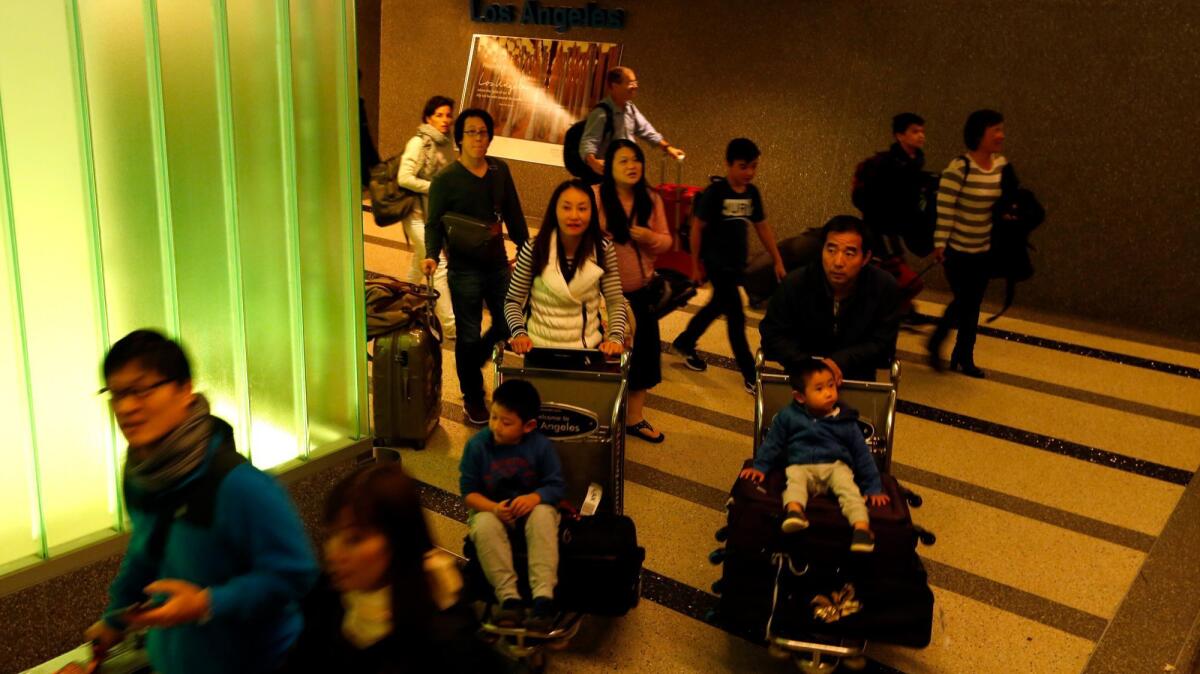
- Show more sharing options
- Copy Link URL Copied!
At 10 a.m. on a cold morning in April at Whittier Medical Center, Sophia was born.
She was a healthy baby girl at 7 pounds and 1 ounce, with a future in America to look forward to, if she chose it.
Her mother, Tracy, came from Shanghai to give her this choice — a chance at the world’s best education, a safe childhood and reliable medical care without long lines.
“I’m here to give my kids better options,” said Tracy, who asked to be referred to by her first name because she has read stories about U.S. officials cracking down on mothers who come to America to give birth.
Even as middle class incomes in China enjoy explosive growth, and 96% of Chinese people in a recent Pew Research poll say their lives are better than their parents’, an unknown number of “birth tourists” like Tracy cross oceans each year to have their babies in America.
And in America’s Chinese enclaves, they find a cottage industry of Chinese midwives, drivers and doctors who accept cash and “maternity hotels” — apartments or homes run as hotels for the women during their pregnancies.
There is nothing in the law that makes it illegal for pregnant women to enter the United States.
— Virginia Kice, ICE spokeswoman
Chinese listing sites show several hundred maternity hotels in Southern California, though it’s not clear how many of the listings are active.
Anyone who lies about the purpose of their visit to the U.S. can be charged with visa fraud, but birth tourism per se is not illegal.
“There is nothing in the law that makes it illegal for pregnant women to enter the United States,” said Virginia Kice, a spokeswoman for U.S. Immigration and Customs Enforcement.
Critics , however, blast the practice as a way to gain citizenship for children by unfairly gaming the immigration system. And spurred in part by those complaints, U.S. officials at every level are exploring ways to crack down on maternity hotels.
That the practice persists, birth tourists say, is a testament to the hold that America still has on Chinese imaginations.
Restrictive family planning policies may have driven some Chinese mothers to give birth in America before 2015, when the one-child policy ended. But many others are simply curious about America and exploring the possibility of a life in the U.S., said Kelly, a birth tourist who has settled in Riverside County’s Eastvale neighborhood.
“China has developed very quickly,” said Kelly, who also declined to provide her first name. “But … Chinese people still have this perception of America as a dream place to live, that it is bigger, better, stronger.”
In 2015, the State Department issued 2.27 million visas to Chinese tourists. It does not track what proportion of visas are issued to birth tourists. Childbirth is a legitimate reason to travel to the U.S., and as long as Chinese nationals provide the correct paperwork and evidence they can pay for their medical care, they will be issued a visa, department officials said.
Chinese people still have this perception of America as a dream place to live, that it is bigger, better stronger.
— “Kelly,” a Chinese birth tourist

But other federal officials have handled the issue differently, acting on suspicions that the practice involves large-scale visa fraud. Border Patrol agents at major ports of entry such as Los Angeles International Airport have recently tightened security for pregnant Chinese women and sometimes block them from entering the country.
And last year, ICE officials raided birth hotels in Riverside, Rowland Heights and Irvine, accusing the operators of tax code violations and of committing fraud by helping birth tourists get visas under false pretenses.
“People who provide false information in order to gain entry to the U.S. pose a potential security vulnerability,” Kice said.
In the San Gabriel Valley, where birth hotels are an open secret, local leaders field a steady stream of complaints from area residents who oppose maternity hotels. In Chino Hills, a group of residents protested the presence of birth hotels in the neighborhood, and Arcadia police even assigned a detective to investigate the businessesin response to residents’ complaints.
In 2013, Los Angeles County formed a birth tourism task force to tackle the issue. The task force has identified and cited 34 birthing hotel operators for running businesses on land that is zoned for residential use. But there is still no county regulation against running hotels for foreign nationals traveling to the U.S. for the sole purpose of giving birth.
The same year that authorities cracked down on birth tourism, “Finding Mr. Right,” a dramatization of a Chinese mother’s trip to Seattle to give birth, grossed $82 million in China, the ninth-highest-earning domestic film that year.
The film wraps the controversy of birth tourism in the familiar narrative confines of a sugary romantic comedy, telling the story of a Beijing tycoon’s wife who flies to Seattle to give birth and falls in love with a driver at the maternity hotel.
One of the first scenes shows her preparing to navigate customs by wrapping a loose cloth around her pregnant belly. At customs, she tells the officer that she’s here to “travel.” When he asks if she’s married, she responds by performing Beyonce’s “Single Ladies” dance.
Rosy depictions of the U.S. in that film and others fuel the American dreams of the growing Chinese middle class. And a deteriorating belief in China’s future drives still others to consider giving birth in America.
Food safety, pollution and income inequality are now among Chinese citizens’ top concerns, according to Pew Research. Just 6% of high-net-worth Chinese individuals say they plan to remain in China full time, according to a Hurun Report poll in 2015, and the U.S. is their top destination.
Authorities say it’s virtually impossible to tell how many Chinese birth tourists come to the U.S. each year. The Center for Immigration Studies, a conservative-leaning think tank, estimates that nearly 36,000 Chinese nationals give birth in the U.S. each year, but “that’s just a guess,” said Jessica Vaughan, the center’s executive director.
Birth tourists are using U.S. citizenship as a safety net, Vaughan said. And they can use welfare and healthcare benefits that they did not pay taxes for. She thinks the government should make it harder for babies born from birth tourism to retain their citizenship by requiring them to spend the first five years of their lives in the U.S., rather than allowing families to take the babies back to their homeland.
“Birth tourism commodifies U.S. citizenship rather than keeping it something that is earned through the legal immigration system. It cheapens citizenship in the eyes of native-born Americans,” Vaughan said.
Karin Wang, a vice president at Asian Americans Advancing Justice, says she is concerned that such attitudes toward birth tourism reflect xenophobia and anti-Asian sentiment. She cast birth tourism as the side effect of a broken immigration system.
“If the immigration system itself worked better, then these convoluted paths that people take to secure status in America would lessen or disappear,” Wang said.
Birth mothers often arrive in the U.S. a few months before they’re set to have their babies because their pregnancies aren’t as visible then, and they’ve heard that officials block pregnant women from entering the country.
Many mothers stay in the U.S. at least long enough to observe the Chinese custom of zuo yuezi, a month-long regimen and diet that is supposed to promote health among new mothers.
Birth tourism commodifies U.S. citizenship rather than keeping it something that is earned through the legal immigration system.
— Jessica Vaughan, director of the Center for Immigration Studies
Before and after the birth, the mothers, who are sometimes joined by their husbands, fight boredom in the suburban communities around Los Angeles where the hotels are often located.
On a recent weekday in Rowland Heights, a block from the birth hotels raided by immigration officials last year, Target was having a 50%-off sale on baby clothes and items. Pregnant Chinese mothers packed the aisles.
Tracy settled into a chair at the Starbucks in the Target, wrapped a jacket around Sophia, installed a toy in her chubby fists, then warmed her hands on a cappuccino.
For better or worse, Chinese mothers’ first impression of American life is often in places like Rowland Heights, a mostly-Asian sprawling suburb of homes and vast strip malls 25 miles east of downtown Los Angeles.
Birth tourism is the neighborhood’s incognito economic engine — dozens of pregnant Chinese women visit these shopping centers each day, walking from nearby maternity facilities or transported by cars the hotel operators provide. There’s OshKosh B’gosh, Babies R Us, Ibiya Family, mattress and crib stores, doctors, dentists and Chinese banks.
Life in America tempts from the strip malls. Among the baby stores, there are home loans on offer, car rentals to go see the homes, real estate agents to guide shoppers and immigration attorneys to handle paperwork.
Many mothers, like Tracy, consider staying. Her reasons have more to do with China’s flaws than U.S. freedoms.
In Shanghai, she says, the buildings are tall and modern, but the rent is high. The skyline is beautiful, but the air isn’t clean and the food isn’t safe. The airport is architecturally impressive but inconvenient.The people speak her language, but they are always judging and comparing, evaluating the clothes she wears, the home and neighborhood she lives in, the school her children will attend. A life in America is a break from all of that.
“Here people are not so competitive, trying to wear better clothes and use better things,” Tracy said. “I don’t even have to wear makeup.”
Later in the afternoon, two pregnant Chinese women wandered into the Starbucks at the Target with a pint of Haagen-Dazs each, searching for spoons
They couldn’t speak English, and the employees behind the counter were busy with a long line of customers. They settled for wooden stirrers, poking away small dabs of ice cream at a time, laughing at each other’s failed attempts.
The women are birth tourists from China who met in Los Angeles. Zhu is not married yet, and she’s not sure when she will be or if she wants to stay in the U.S. But she flew from Guangdong to have her baby because she says she has no other choice.
She says she’s fleeing family-planning regulations that fall particularly hard on single mothers in China. To have a baby, the government must issue a reproduction permit, and single women have had trouble getting them. In Wuhan, China two years ago, authorities even considered fining single pregnant women 80,000 yuan.
Rowland Heights, along with Arcadia and Irvine, have long been plagued with rumors that the communities host “mistress villages” — a slang term in China to describe a housing complex where rich Chinese men house their mistresses.
The rumors are unverifiable, but birth tourists, birth hotel operators, nurses and other people working in the industry told The Times that Chinese single women form a significant part of the birth tourism industry.
A baby without the proper permits can’t access public services like school or healthcare, Zhu said. And mothers giving birth out of wedlock face withering social persecution.
So a few months ago, she came to the U.S. alone to give birth. It was her unborn child’s only chance at a future, she said.
Green fields, tall trees, modern cities, stylish people and nothing to worry about — those are the things Kelly expected before she came to America to have her baby.
What she found was something slightly different: a big empty home in Eastvale, with nothing but suburbia to see for miles in every direction but the occasional strip mall and the San Gabriel Mountains.
Still, they own their home, something they could have never afforded in Zhejiang. And her husband, who works in the pharmaceutical industry, has found better career opportunities than he ever could have in China.
“As a young person in China, you walk slowly upwards, unless you have an uncle in the right place,” Kelly said.
Eventually she plans to go back to work. But for now her life consists of trips to the nearby library, walks to the park and time spent in the living room of their home, where on a recent weekday, she tries to steer some noodles into the mouth of her 7-month-old son.
For the time being, they plan to stay.
“We haven’t really decided that we want to be American, but we like America,” Kelly said.
Twitter: @frankshyong
For Asian Americans, 2016 election is shaping up to be a turning point
Southland’s new wave of Chinese restaurants are about a lot more than takeout
When Trump says he wants to deport criminals, he means something starkly different than Obama
More to Read
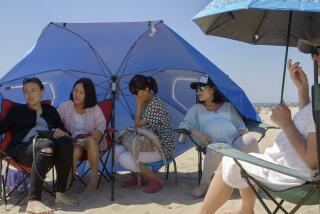
Column: Chinese birth tourism documentary pulls back the curtain on a controversial industry
Jan. 26, 2024
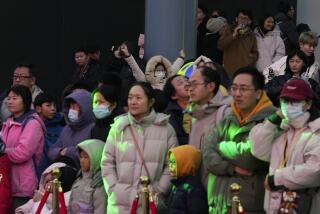
China’s population falls for a second year in a row as COVID restrictions end
Jan. 17, 2024
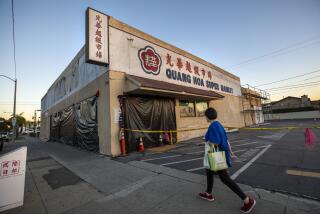
Column: Once flush with Chinese tourism dollars, San Gabriel Valley searches for a new normal
Nov. 10, 2023
Start your day right
Sign up for Essential California for news, features and recommendations from the L.A. Times and beyond in your inbox six days a week.
You may occasionally receive promotional content from the Los Angeles Times.

Frank Shyong is a columnist for the Los Angeles Times writing about diversity and diaspora in Los Angeles.
More From the Los Angeles Times

Murder or self-defense? Ex-school officer on trial for shooting girl in moving car
April 4, 2024

LAPD officer who moonlights as gun influencer loses lawsuit over social media accounts

Wayfarers Chapel looks to relocate due to threatening landslide
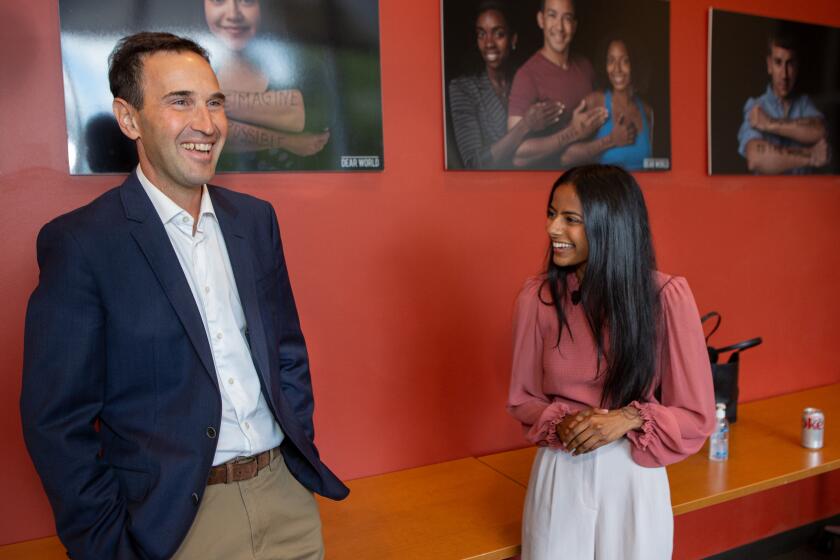
Stanford names Jonathan Levin, business school dean, new president after leadership crisis
What is ‘birth tourism’ and why is the US trying to stamp out the practice?
State Department gives visa officers new powers to block pregnant women from entering the country
- Newsletter sign up Newsletter

The Donald Trump administration has unveiled new rules designed to deter pregnant women from travelling to the US to give birth.
Pregnant women applying for a US visitor visa may now have to prove they have an identifiable reason for going there other than having their baby on US soil - which is not “a legitimate activity for pleasure or of a recreational nature”, according to a State Department spokesperson.
So what triggered the crackdown on so-called “birth tourism” and why is it so controversial?
Subscribe to The Week
Escape your echo chamber. Get the facts behind the news, plus analysis from multiple perspectives.

Sign up for The Week's Free Newsletters
From our morning news briefing to a weekly Good News Newsletter, get the best of The Week delivered directly to your inbox.
What is birth tourism?
Birth tourism is the practice of travelling to another country for the purpose of giving birth there, usually to obtain citizenship for the child, using birthright citizenship laws.
What is the US citizenship question?
As far back as the early 1980s, The New York Times was reporting on Mexican mothers travelling to the US in an attempt to secure American citizenship and a chance of a better life for their children.
Demand for help in gaining access to the US is increasingly being fed by illegal “maternity tourism” operations. In 2015, federal authorities in southern California conducted widespread searches as part of an investigation into businesses suspected of charging women up to $60,000 to pave the way for them to give birth in the country.
And a Chinese woman last year pleaded guilty in the US to federal charges of running a birth tourism scheme for Chinese nationals who paid a total of more than $3m (£2.3m) in wire transfers.
Just how how great is the problem?
No official data is available for how many birth tourism babies are born in the US. The State Department has said only that “thousands of children” are born in the county each year to people who are either visiting or conducting business on non-immigrant visas.
However, various groups have offered estimates. According to the BBC , latest figures from the US Centers for Disease Control and Prevention suggest that around 10,000 babies were born to foreign residents in 2017.
Meanwhile, the Center for Immigration Studies, which campaigns for tight immigration laws, estimates that about 33,000 children were born to women on temporary tourist visas in the year from mid 2016.
––––––––––––––––––––––––––––––– For a round-up of the most important stories from around the world - and a concise, refreshing and balanced take on the week’s news agenda - try The Week magazine . Start your trial subscription today –––––––––––––––––––––––––––––––
Why is the US cracking down?
The White House says birth tourism is putting additional pressure on hospital resources. In a statement this week, press secretary Stephanie Grisham said the new ban would “defend American taxpayers from having their hard-earned dollars siphoned away to finance the direct and downstream costs” associated with such cases.
The State Department also claims that some of the countries linked to birth tourism “have very sensitive relationships with the United States” and might use the practice “for purposes that would threaten the security” of the nation. The department did not clarify the nature of the potential threat or which countries might be involved.
The renewed opposition to birth tourism may also be linked to the upcoming presidential election.
The NPR news site reports that Trump “has been a frequent critic of birthright citizenship”. The 2015 reports of birth tourism operations in California prompted the then White House hopeful to call for eliminating birthright citizenship entirely.
Trump also “revived the discussion just before the 2018 midterm elections - and his administration is taking it up again now, ahead of the 2020 presidential vote”, the site notes.
Sign up for Today's Best Articles in your inbox
A free daily email with the biggest news stories of the day – and the best features from TheWeek.com

Talking Points Protesters want Israel's leader to bring the hostages home
By Joel Mathis, The Week US Published 2 April 24

Instant Opinion Opinion, comment and editorials of the day
By Harold Maass, The Week US Published 2 April 24

Speed Read The virus has been spreading among cattle in Texas, Kansas, Michigan and New Mexico
By Peter Weber, The Week US Published 2 April 24

Editor's Letter Why our brains want to forget the darkest days of the pandemic
By Theunis Bates Published 2 April 24

By Harold Maass, The Week US Published 1 April 24
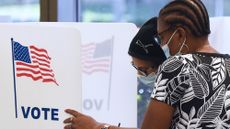
Talking Point Polling indicates that the groups may no longer be Democratic Party strongholds
By The Week UK Published 1 April 24

By Harold Maass, The Week US Published 29 March 24

By Harold Maass, The Week US Published 28 March 24
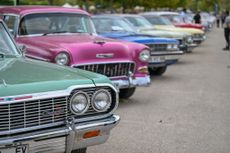
By Harold Maass, The Week US Published 27 March 24

Speed Read The former president is hawking a $60 "God Bless the USA Bible"
By Peter Weber, The Week US Published 27 March 24
- Contact Future's experts
- Terms and Conditions
- Privacy Policy
- Cookie Policy
- Advertise With Us
The Week is part of Future plc, an international media group and leading digital publisher. Visit our corporate site . © Future US, Inc. Full 7th Floor, 130 West 42nd Street, New York, NY 10036.
- Personal Injury Practice Areas
- Construction Accidents
- Motor Vehicle
- Bus Accident
- Truck Accident
- T-Bone Accident
- Train Accident
- Hit And Run
- Pedestrian Accident
- Rollover Accident
- Slip & Fall
- Nursing Home Negligence
- Medical Malpractice
- Wrongful Death
- Product Liability
- Bicycle Accident
- Drunk Driver
- Burn Injury
- Birth Injury
- Uber Accident
- Case Studies

- Immigration Immigration Services
- Citizenship & Naturalization
- Employment Immigration
- Deportation and Removal Defense
- Family Immigration
- Investor Visa
- Marriage-Based Visa
- Immigration Mandamus Litigation
- Asylum & Refugee Protection
- Nonimmigrant Visas
- Student Visa
- Fiance Visa
- Success Stories

- Brad Show Live
- Legal Insights
- Get In Touch
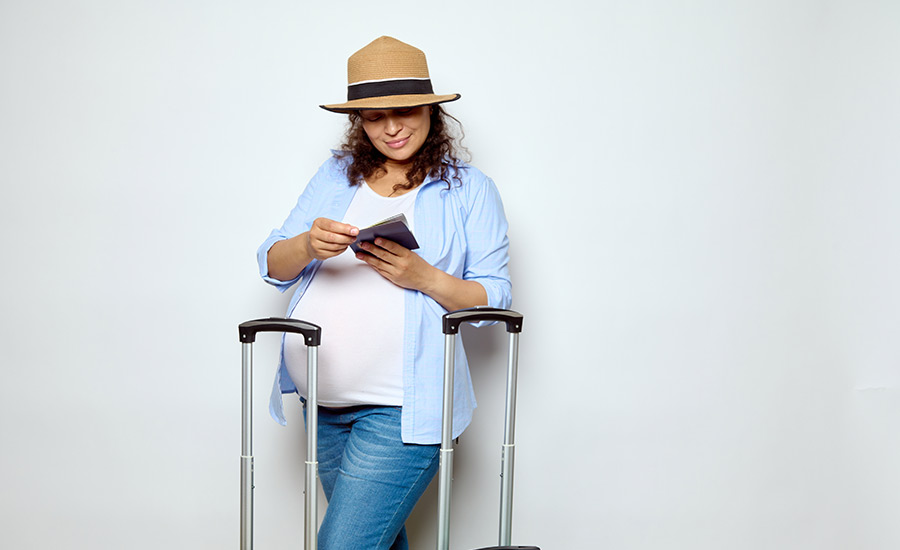
Giving Birth In The US On A Tourist Visa: A Detailed Guide
Each year, the United States become birthplace of 33,000 babies while their mothers visit the country as tourists — on top of hundreds of thousands more born by women on temporary visas and illegal aliens.
This alarming statistic has led to legal changes for giving birth in the U.S. on a tourist visa.
We’ll explain what birth tourism is and cover the legal consequences of having your baby in the U.S. as a tourist. We’ll also share the most recent legislation updates regarding tourist visas for pregnant women.
Contact Spar & Bernstein
Table of Contents
What Is Birth Tourism?
Birth tourism is the practice of traveling to another country, specifically to give birth in that country. Birth tourism often occurs on a temporary visa, such as a tourist visa.
Considered one of the best countries to give birth in, the U.S. is an attractive place for birth tourism. The motivation behind birth tourism in the U.S. includes:
- Perceived stability : Accepted as a stable and prosperous country, the U.S. is an attractive place to give birth and raise a child.
- Citiznship benefits : Giving birth in the U.S. makes your child a U.S. citizen, which gives the child access to education, healthcare and potential career opportunities.
- Family reunification: Giving birth in the U.S. can be used as a pathway for you and your spouse as a U.S. citizen’s parents to obtain legal immigration status in the U.S.
However, birth tourism in the U.S. is viewed as a potential threat to national security , because:
- It can lead to the fraudulent acquirement of U.S. citizenship, bypassing the traditional immigration pathways and security screening procedures
- It can strain healthcare and public services, impacting the well-being and security of citizens and legal residents
As a result, birth tourism has provoked numerous discussions about tightening regulations to ensure that those who enter the U.S. come to the country for legitimate reasons and are not compromising national security.
What Happens If You Give Birth In The US On A Tourist Visa?
Giving birth in the U.S. on a tourist visa can have certain legal consequences for both mother and child.
1. Legal Implications For The Mother
Giving birth in the U.S. on a tourist visa does not automatically grant you the right to stay in the country based on the birth of your child.
Your visa status remains unchanged and you will be typically expected to leave the U.S. before your visa expires. If you do not leave the country after the expiration of your visa, this will be considered as overstaying a visa , which may result in future travel restrictions or challenges when applying for a visa for subsequent visits.
In addition, if your primary purpose for entering the U.S. was to give birth and you did not truthfully represent your intentions to immigration officials, you can be charged with visa fraud due to willful misrepresentation of a material fact (that you were planning to have your baby in the U.S.) or face visa denial for future visa applications, due to credibility concerns.
While giving birth in the U.S. does not directly grant you any type of immigration status, there may be pathways that can help you remain in the U.S. permanently.
These alternatives can include family-sponsored visas, employment-based visas or other immigration categories. Talk to an experienced immigration attorney to understand your options.
2. Legal Implications For The Child
If your child is born on U.S. soil, they will acquire U.S. citizenship through the principle of jus soli (birthright citizenship).
- In addition to citizenship, being born in the U.S. allows your child to:
- Apply for a U.S. passport
Hold dual citizenship, depending on your home country’s laws
Apart from benefits, however, U.S. citizenship also comes with certain obligations. If your child is born in the U.S. and therefore is a U.S. citizen, your child is likely to:
- Have residency obligations, such as potential taxation on global income and the need to enter and exit the U.S. using a U.S. passport
- Face immigration challenges, as they may need to navigate U.S. immigration regulations, even if they choose not to reside in the U.S.
Because each situation is unique, the legal implications can vary based on the specific circumstances. We recommended seeking professional advice from a reputable immigration law firm, like The Law Offices of Spar & Bernstein.
With five decades of immigration experience, our team at The Law Offices of Spar & Bernstein has supported thousands of people in various immigration situations, from getting married on a tourist visa or navigating a visa overstay to removing conditions on a Green Card and facing the challenges of divorce after Green Card .
Schedule a consultation with our caring and tenacious team for professional guidance and advice in your situation. We will explain the legal implications for yourself and your child and share our advice on next steps.
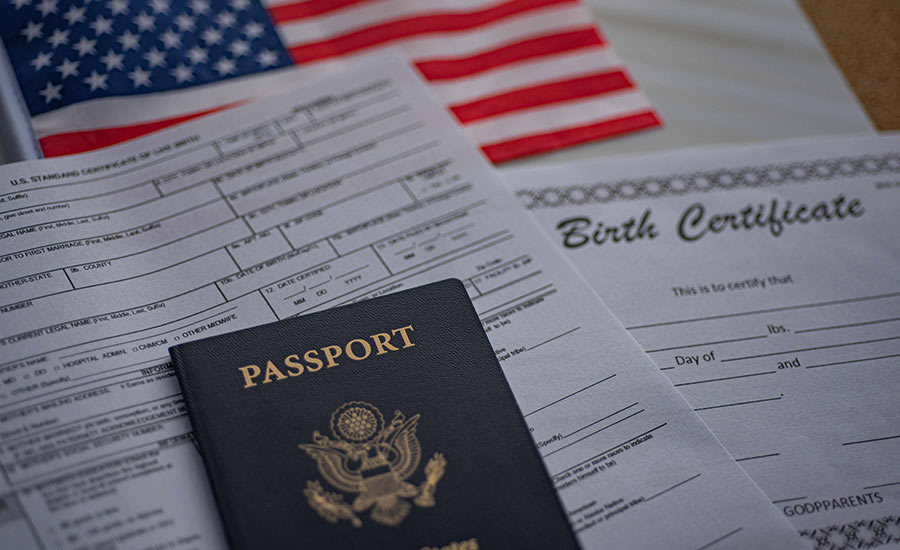
New Rules For Giving Birth On A Tourist Visa In The US
As per the U.S. government, traveling to the U.S. and giving birth with the intention to obtain U.S. citizenship for your child is not an acceptable reason for granting a B nonimmigrant visa.
According to the updated temporary visa regulations , which became effective as of January 22, 2020, the consular officers have the authority to deny a B nonimmigrant visa to individuals they believe intend to travel solely for the purpose of obtaining U.S. citizenship for their child through birth.
However, the U.S. government recognized that foreign nationals may wish to travel to the U.S. for medical treatment while pregnant , which is different from birth tourism.
If you need to visit the U.S. for medical treatment while pregnant, you must submit your visa application along with:
- A legitimate reason to travel to the U.S. for medical treatment, such as a condition requiring specialized medical expertise, availability of advanced medical technology, chronic disease management, participation in a trial or experimental treatments that are not available in your country, or seeking a second opinion
- A confirmation by a medical practitioner or facility stating that they agreed to provide treatment
- An estimated duration of stay in the U.S.
- A projected cost of treatment
- Proof that you can cover your medical treatment, transportation and living expenses, either on your own or with pre-arranged assistance from other parties
The new rule restricting tourist visas to pregnant women does not affect :
- F-1 academic visa applicants
- M-1 vocational student visa applicants
- H1-B work visa applicants
- Those seeking lawful permanent residence in the U.S.
If you are considering visiting the U.S. on a tourist visa, especially if you are pregnant, talk to legal experts to review the latest updates and get professional recommendations on next steps.
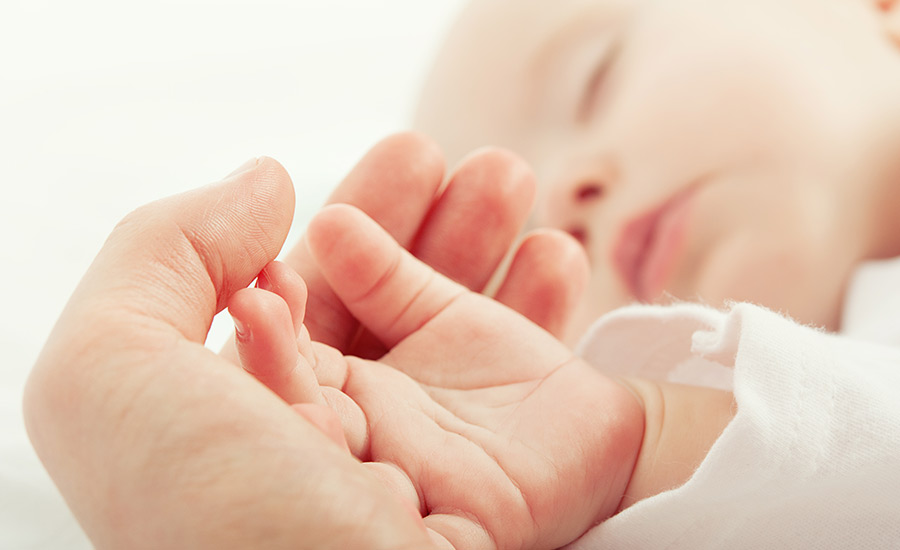
Need Legal Advice? Contact Spar & Bernstein
With a long-standing history and commitment to serving clients with care and compassion, our experienced team at The Law Offices of Spar & Bernstein provides a guiding hand in key areas of immigration, from nonimmigrant visas and marriage-based visas to family immigration and waivers .
Giving birth in the U.S. on a tourist visa can be extremely overwhelming. To help you in this life-changing situation, our knowledgeable and compassionate lawyers will:
- Provide personalized advice based on your specific situation
- Assess your visa status
- Explain your rights and obligations as a foreign national in line with the changing policies and regulations that might affect your situation
- Provide insight into the implications of U.S. citizenship for your child
- Explore various legal options for you and your child, such as addressing potential overstays, adjusting your visa category or seeking pathways for obtaining legal immigration status
- Review your documentation to ensure accuracy and compliance with immigration regulations
- Submit your application for extending your stay or changing your visa category, along with all necessary documents
- Handle the communication with immigration officials on your behalf
- Represent you and advocate on your behalf in case of visa denial, overstay issues or other problems
- Provide peace of mind while you focus on caring for and bonding with your child
With Spar & Bernstein, you can rest assured that you and your child are in good hands.
Schedule a consultation
Giving Birth In The US On A Tourist Visa: Key Takeaways
Giving birth in the U.S. on a tourist visa can have a number of legal implications for both you and your child.
You will likely be denied a visa if your intentions to travel to the U.S. are only related to birth and the potential benefits that offers.
However, you can still be eligible for a visa if your medical condition requires treatment in the U.S. and you are expecting a child.
If you have questions about birth tourism or need to get a visa for medical treatment in the U.S. while pregnant contact our experienced and compassionate immigration lawyers at Spar & Bernstein.
We will help you navigate this complex situation by taking care of all the documents and procedures needed to maintain your legal status and pursue pathways to maintain in the country, if desired.
Work with our immigration attorneys

Bradford H. Bernstein
This article was written and reviewed by Bradford H. Bernstein, a second-generation leader at Law Offices of Spar & Bernstein, P.C., who has helped over 100,000 clients with immigration and personal injury issues. Brad joined the firm in 1993, became a partner in 1997, and assumed leadership in 2000 after Harry Spar retired.

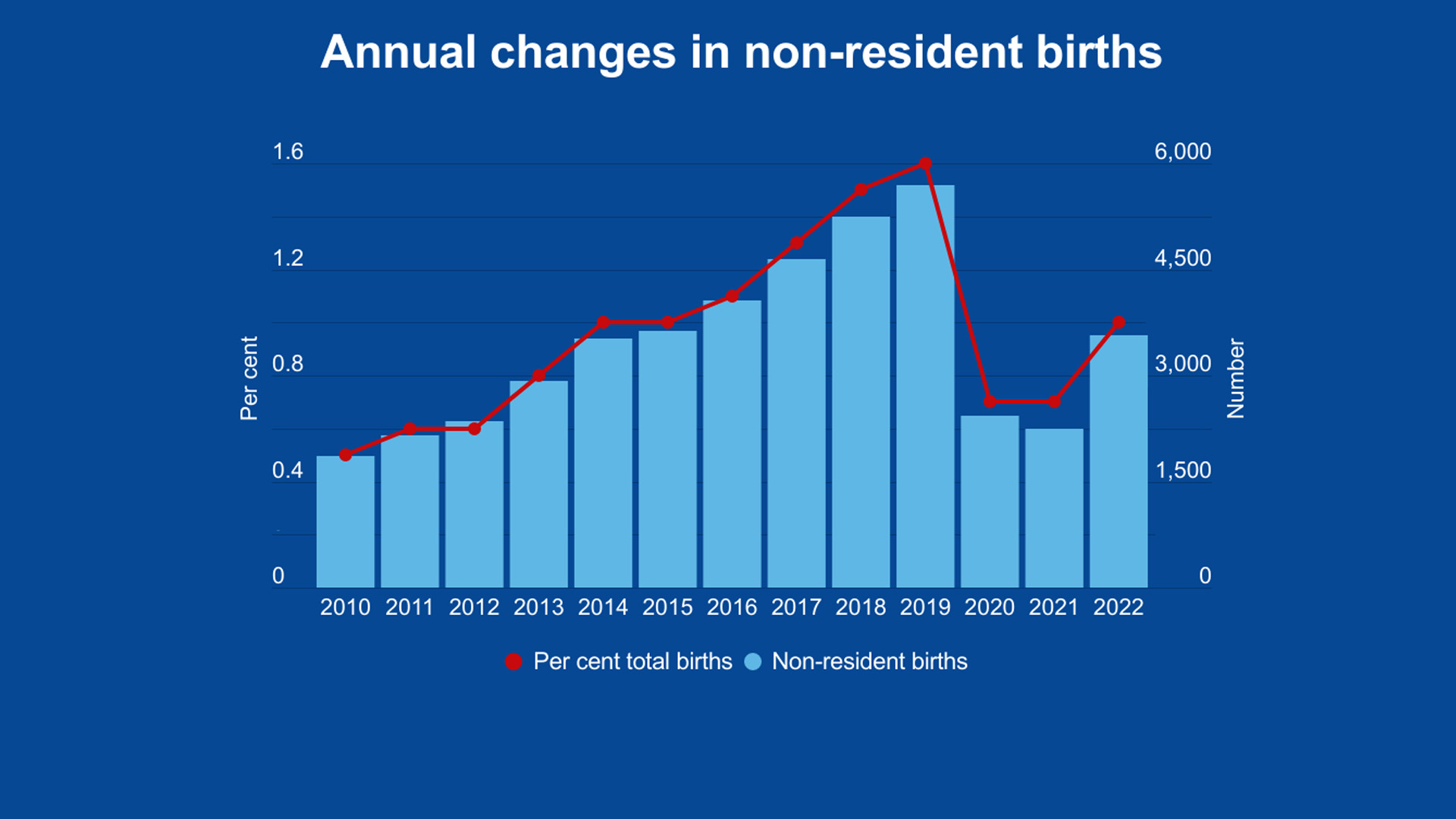
- Global Affairs
Birth tourism is rising again post-pandemic

The COVID-19 pandemic provided the perfect natural experiment to assess the extent of birth tourism in Canada.
Dramatic declines of 50 per cent compared with the pre-pandemic 2016-20 average occurred in 2020 and 2021 in the number of “non-resident, self-pay” births. That was followed by an overall increase of 53 per cent in 2022 compared with the 2020-21 average, although the 2022 figure is still far below the 2019 peak.
This partial return to growing numbers highlights the need for the government to make good on its 2018 commitment to get a better handle on the extent of birth tourism, and to go so far as to consider an amendment to the Citizenship Act.
Figure 1 captures the steady increase prior to the pandemic and the sharp fall thereafter. Last year’s increase to 3,575 non-resident births from the pandemic average of 2,339 occurred in all provinces.
Table 1 compares non-resident births in 2011-15 and 2016-20 with those in subsequent years. The increase over these five-year periods contrasts with the sharp decline in 2020-21 and the sharp reversal in 2021-22, both of which were particularly notable in British Columbia. Compared to the 2019 high, the number of non-resident births has rebounded to 63 per cent of pre-pandemic levels.
There is no comparable U.S. post-pandemic data because since January 2020, the U.S. no longer issues visas “for birth tourism (travel for the primary purpose of giving birth in the United States to obtain U.S. citizenship for their child).”
Because there is no health-specific code for women travelling to Canada on visitor visas for birth tourism, the broader non-resident self-pay code is used. However, this includes international students, about half of whom are covered by provincial health plans, and other temporary residents.
Overall visitor visas in 2022 largely rebounded to pre-pandemic levels. The number of temporary workers has increased significantly. However, this varies by country.
Overall visitor visas for Chinese nationals used to be one of the major groups for birth tourism, but they have fallen dramatically. Chinese government travel-related restrictions are likely a significant factor in the reduction in Chinese birth tourists.
The percentage of non-resident births fell from 1.6 per cent of total births in 2019 to 0.7 per cent in 2020 and 2021, but it rebounded to 1.0 per cent in 2022. About 50 per cent of non-resident births are estimated to be birth tourists.
Table 2 provides a view of the impact of COVID-19 on non-resident births for the 10 hospitals in Canada with larger percentages of non-resident births. Since the dramatic fall during the pandemic, non-resident births have increased in most hospitals.
British Columbia’s Richmond Hospital was once the epicentre of birth tourism with its supportive “cottage industry” of “birth hotels.” In 2019-20, non-resident mothers made up 24 per cent of its births. But it fell sharply in this category during the pandemic and has rebounded only to four per cent in 2022. It’s now fourth in the Top 10.
The new No. 1 and No. 2 are Toronto’s Humber River Hospital, with 10.5 per cent of all births being non-residents and Montreal’s St. Mary’s with 9.4 per cent. Humber River is also the only hospital that showed an overall increase compared to pre-pandemic period.
There is a need for more hospital-level studies such as the one in Calgary that found about one-quarter of non-resident women who gave birth in the city in 2019-20 were from Nigeria. The study also estimated the cost to Alberta taxpayers.
The development of links between Canadian immigration data (e.g., immigration program and category) and Canadian Institute for Health Information (CIHI) health data on medical services should allow for greater precision about the number of women giving birth while on visitor visas and those under other temporary resident categories.

Is birth tourism about to return now that travel restrictions have been lifted? Birth tourism in Canada dropped sharply once the pandemic began Hospital stats show birth tourism rising in major cities
Overall, the federal government has not followed up on its 2018 commitment to “better understand the extent of this practice as well as its impacts” following the first release of the non-resident self-pay numbers and related media attention. The 2021-22 decline understandably reduced political interest and pressure in addressing the issue.
Given current and planned increases in immigration, it is highly unlikely that the government will act because the number of non-resident births is basically a rounding error compared to overall immigration of 500,000 a year by 2025 .
However, as visitor visas largely reverted in 2022 to pre-pandemic levels, it is no surprise that non-resident births, including birth tourism, have increased. The government should resume work to clarify the issue. In particular, it should link immigration and health data to improve understanding of immigration and health issues, including birth tourism. As numbers of non-resident births can be expected to increase further, greater precision regarding the components of non-resident births would inform possible policy and program responses.
A 2019 Angus Reid survey found that 64 per cent of those Canadians surveyed would support a change in the law so that citizenship is not conferred on babies born here to parents on tourist visas.
Policy and operational questions remain about whether birth tourism warrants an amendment to the Citizenship Act , visa restrictions on women intending to give birth in Canada, or other administrative and regulatory measures to curtail the practice.
Visa restrictions would be difficult to administer and regional administrative and regulatory measures might encourage hospital and jurisdiction “shopping.”
So the cleanest approach would be an amendment to the Citizenship Act that would require one parent to be a citizen or permanent resident of Canada. That is the situation in Australia.
Should the Conservatives form a government after the next federal election, they may well decide to revisit the issue of birth tourism given that the Harper government pressed the issue in 2012 only to back off.
A note on methodology
The data is from the CIHI ’ s discharge abstract database, more specifically “ non-resident self-pay ” category in the responsible for funding program (RFP), as well as totals for hospital deliveries.
The overall RFP data includes temporary residents on visitor visas, international students, foreign workers and visiting Canadian citizens, and permanent residents. Quebec has a slightly different coding system, but CIHI ensures its data is comparable. Data for Quebec hospitals is not provided through CIHI and thus the larger Montreal area hospitals were approached directly.
Ottawa-area hospitals were not included given the number of diplomatic families likely being a substantial portion of non-resident births. Declines in non-resident births at Trillium-Credit Valley Hospital in Mississauga, Ont., led to that hospital falling off the Top 10 list.
Health coverage for international students varies by province, but most of them are covered by provincial health plans. This is not the case in Manitoba and Ontario, as well as for some students in Quebec if their country of origin does not have a social-security agreement with Quebec. The pre-pandemic baseline is the five-year average 2016-20.
Mackenzie Health ’ s woman and child program moved from Mackenzie Richmond Hill Hospital to Cortellucci Vaughan Hospital when it opened to the community in June 2021 .
You are welcome to republish this Policy Options article online or in print periodicals, under a Creative Commons/No Derivatives licence.
Republish this article
by Policy Options . Originally published on Policy Options December 14, 2023
This <a target="_blank" href="https://policyoptions.irpp.org/magazines/december-2023/birth-tourism-is-on-the-rise-again/">article</a> first appeared on <a target="_blank" href="https://policyoptions.irpp.org">Policy Options</a> and is republished here under a Creative Commons license.<img id="republication-tracker-tool-source" src="https://policyoptions.irpp.org/?republication-pixel=true&post=109994&ga4=G-GR919H3LRJ" style="width:1px;height:1px;">

This work is licensed under a Creative Commons Attribution-NoDerivatives 4.0 International License .
Related stories
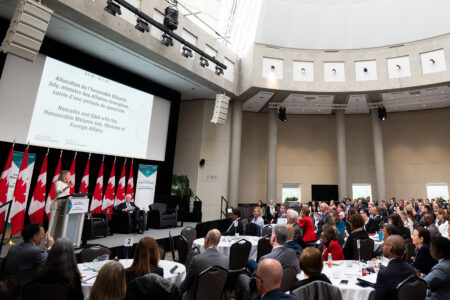
- National security
Canadian diplomacy needs to find its way back from the wilderness
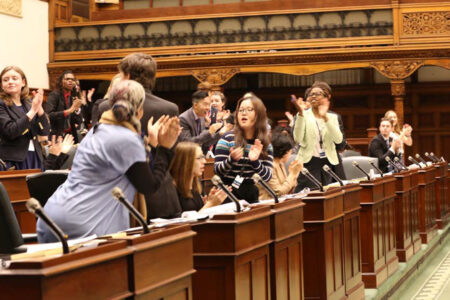
Using simulations to teach civics in high school could improve voter turnout
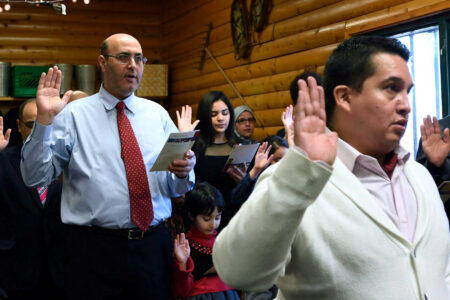
- Policy-making
A one-click citizenship oath isn’t the way to go
.png?width=450&height=225&name=Expat%20Money%20Logo%202023%20(3).png)
- Português - Brasil

Top Countries For Birth Tourism
Birth Tourism is giving birth in a country that grants citizenship based on " jus solis" and provides benefits to all children born there. This will not only give your child a better quality of life but also entitles them to a second passport immediately from birth. In many cases, parents of such children enjoy a faster naturalization timeline as well.
When it comes to determining a child’s citizenship at birth, countries usually apply one of two rights: " jus solis" (right of soil) or " jus sanguinis" (right of blood). " Jus solis " grants citizenship merely on the basis of being born “on the soil” of the country in question. " Jus sanguinis" determines the child’s citizenship based on the parents’ nationality.
The process of “ jus solis ” is generally available to anyone who has a child within the territory of a country with birthright citizenship, even if they are a temporary resident or an illegal alien. The only people whose children do not qualify for instant citizenship are diplomats.
These countries offer what is called “ absolute jus solis ,” meaning that the biggest hurdle you’ll face in some countries is having to register your bundle of joy with the local authorities to secure their passport.
Birth tourism is common practice in both North and South America for countries to grant citizenship to anyone born on their soil.
birth tourism
Almost all of the countries in North and South America recognize the right of a child born on their soil to have citizenship in their country. Canada, being a first-world nation that practices birthright citizenship, is a popular destination for birth tourism. As global tourism, international travel, and digital nomads continue their exponential rise, birth tourism can be expected to become even more commonplace.
The primary advantage of birth tourism is that you get a second passport for your child. In some cases, it can also expedite permanent residency and citizenship for the parents as well.
In Mexico, if your child is a Mexican citizen, then you can apply immediately for permanent residency, whereas most people need to live there for at least four years on a temporary residence permit. Furthermore, you could apply for Mexican citizenship within only two years.
Likewise, if your child is born in Brazil, you can also fast-track Brazilian residency and citizenship because of your family ties. The Mexican and Brazilian passports are highly desirable since they allow passport holders visa-free travel throughout most of the world. The Mexican passport facilitates entry in 160 countries and Brazil in 170 countries.
Another advantage of birth tourism is the ability to access first-world social services as a citizen. For example, a child born in Canada and possessing Canadian citizenship could return and access highly subsidized post-secondary education without shelling out the CAD $30,000 ($22,474 USD) a year that most international students pay.
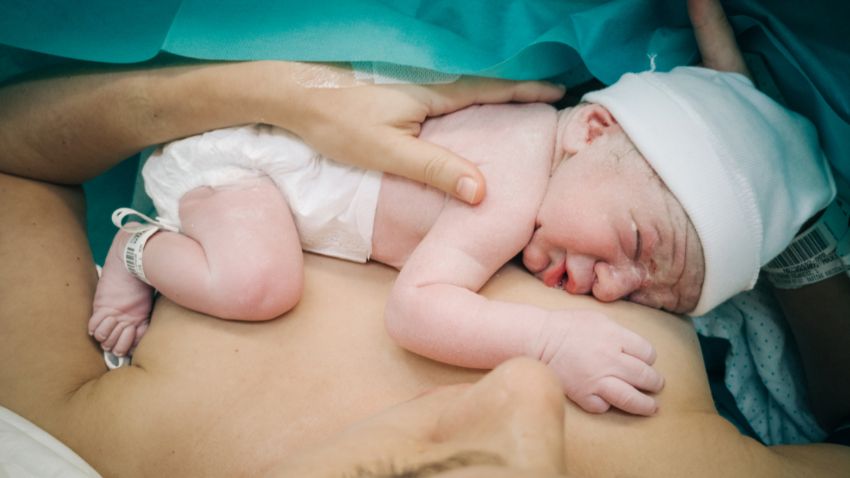
Giving birth in countries like Portugal can provide your child and you with dual citizenship.
Having a second passport increases substantially the opportunities available to anyone. While a child born in Canada may eventually be able to confer permanent residency to their parents through sponsorship, they must be of adult age and have the means to financially support their parents to do so. America, too has a similar process.
While having a child in Canada or the USA may confer citizenship to the child, it does not necessarily mean the parents can stay with them or immediately become citizens as well.
Another reason for birth tourism, aside from birthright citizenship, is affordability. While taking advantage of getting a secondary passport for your child, you can also save money by having your child overseas.
In Brazil, for example, health care is a right even for foreigners, and if you wanted, you could have your child for free in the public system. Or you could opt for the higher-quality private hospitals and still save money vs having your child in the states.
Mexico is another low-cost destination for childbirth, with costs starting as low as $500 USD (although $1500 USD to $2000 USD is probably more typical).
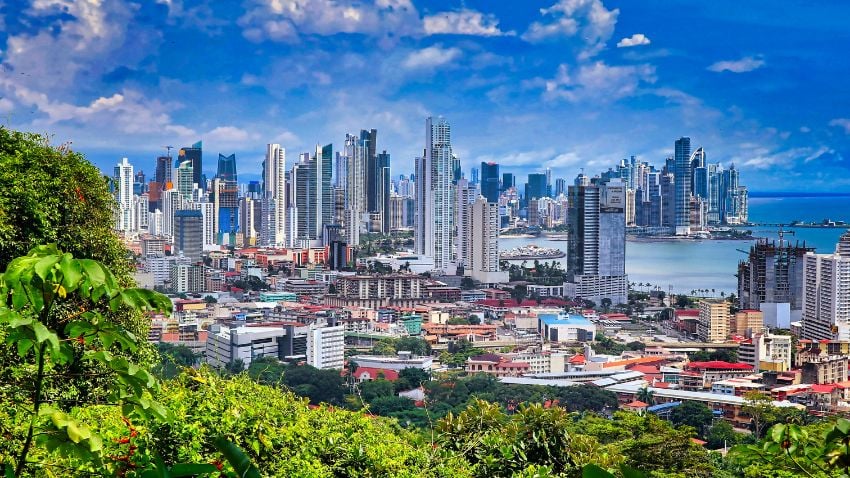
You can apply for Panama Citizenship if you are a parent of a Panamanian citizen
top countries for birth tourism
Most of the countries in the Americas allow for birthright citizenship (Colombia being one notable exception). Canada and the USA are two of the most desirable locations, since being the richest nations they afford their citizens the most economic opportunities.
Mexico and Brazil have their advantages, as they offer parents of so-called “passport babies” a fast track to citizenship, and they are popular expat destinations anyway.
Chile is also a fairly desirable location for birth tourism, as its economy is robust and growing, and its passport is fairly powerful. However, as of 2019, they require at least one parent to be a legal resident.
Panama is another excellent country for birth tourism, as they have high-quality hospitals, and a great economy and they allow parents of Panamanian citizens a fast track to citizenship. They also practice a territorial tax system, so if you become a tax resident there, you do not have to pay any tax on foreign-sourced income.
Here is a list of the best countries in which to give birth:
Before I go into details about engaging in birth tourism, I would like to mention a very desirable passport; however, it is far from easy to acquire. European passports are very sought after mostly because of their high passport strength ranking and visa-free travels to an incredible amount of countries. Only a few European Union countries offer " jus solis ," but all of them have requirements such as having one or both parents being residents or citizens at the time of birth. Portugal is your best choice for European birth tourism since it requires only one of the parents to have been a resident for at least one year.
how to engage in birth tourism
If you are thinking about having your baby in a foreign country in the Americas to take advantage of birthright citizenship, then what is the best way to go about it? First, you must pick the country you want to give birth in. The easiest approach is to go somewhere where you have visa-on-arrival or visa waiver privileges, so you can just go ahead and show up. Alternatively, if you have to apply for a tourist visa to go to that country (we’ll look at Mexico here in our hypothetical, but there are plenty of other options to consider as well), then you must do that planning ahead as it can be time-consuming due to requirements and visa processing time. Alternatively, you could also consider applying for a temporary residency in this country if you have family or business ties there or want to invest in that country .
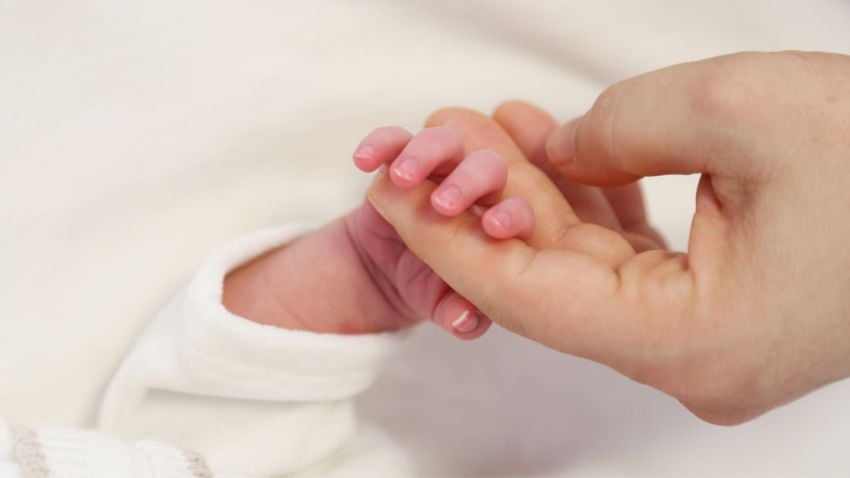
Giving your child dual citizenship due to " jus solis" and " jus sanguinis" is a step towards securing your child's freedom and future.
Once you have figured that out, you want to travel to the country when you are pregnant. You will need to find a good hospital. Make sure you check out the reputation and reviews online and talk to any friends you might have with first-hand knowledge. Of course, you will want to have ample savings to cover both the cost of your hospital stay and your extended stay in Mexico leading up to the birth. You might be pleasantly surprised at some of the differences in medical care and the attention you receive from your physician. Hotels are very affordable in Mexico, so you might opt to stay in a hotel nearby the hospital in the time leading up to your birth to minimize travel time when the big day comes.
After you have your baby, you will need to register them to get a birth certificate, and then once you have that, you can apply for their passport, and you are good to go. If you are interested in Mexican citizenship yourself, then as we mentioned earlier, you can use your child’s status as a Mexican citizen as a means of fast-tracking your own permanent residency and citizenship. And even though your baby is now a Mexican citizen, they will still have the citizenship of their birth parents as well. So if you are a Canadian citizen, then your child will also qualify to be a Canadian citizen; you just have to fill out some paperwork.
Not every government offers this ease for birth tourism. Each government has its set of laws, requirements, and policies, which is why it is important to seek to work with an experienced company. This will save you money, time, and provide reliable and accurate information.
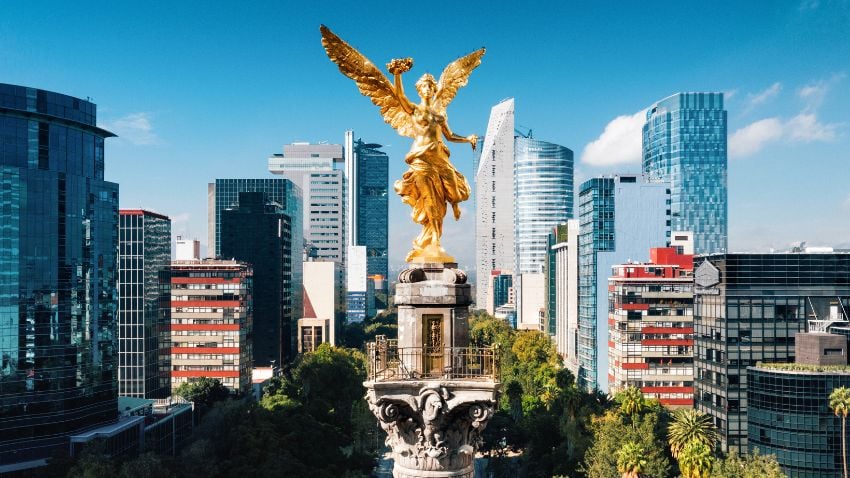
You can get permanent residency in Mexico if you are a parent of a Mexican citizen
OUR PERSONAL STORY
Those of you that have been with me over the past several years know that my wife and I have given birth twice outside our home countries. My daughter was born in the UAE, unfortunately, they do not offer residencies or citizenships through birth; however, our second child was born In Brazil in 2021.
We followed what was set out above. We picked our country of choice, applied for our visas (as a Canadian I did not need a visa, my wife is Chinese, and she did require one, which we were able to apply for and get) and found a company to work with to expedite everything, especially because we don't speak Portuguese.
Before entering Brazil we checked out hospitals and cities to live in, so there were no surprises. When we travelled to Brazil we were 6 months into the pregnancy and worked with a company that helped us with the hospital, paperwork and the many forms required.
In May of 2021, our son was born in a hospital in Florianopolis, Brazil and the staff and facilities were outstanding. The cost was about $2,500 USD, similar to many Latin American countries and we were back in our Airbnb within 3 days.
We stayed in Floripa for 6 months to apply for permanent residency; unfortunately due to Covid, our appointment was set for 6 months in the future. That's another story and another article.
We now have a Brazilian baby! There really is no better way to give your kids this amazing gift that they will have for the rest of their lives. If you have the opportunity, go for it, you will not be disappointed!
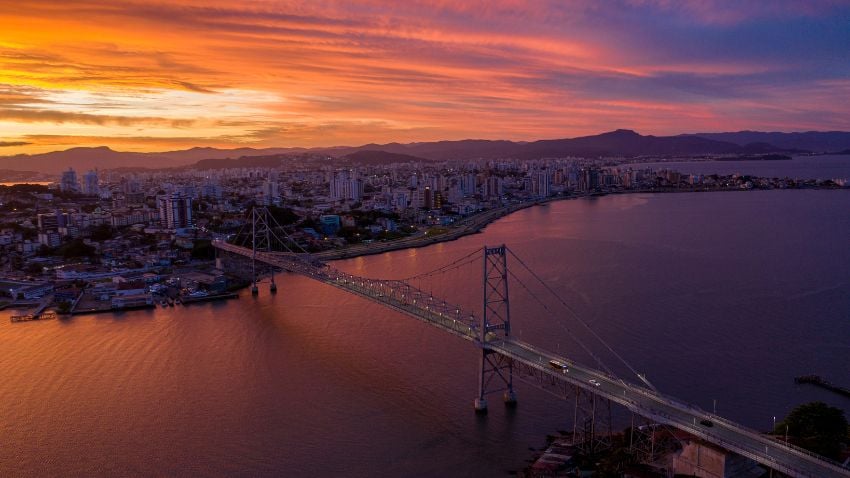
With a Brazilian child it's easy to request for permanent residency in Brazil
As mentioned above, with the travel increase globally, and the increase in remote job opportunities leading more people to a digital nomad lifestyle , we are bound to see an increase in birth tourism. For now, we can see a higher trend for birth tourism in the Americas as most of the countries in the Americas practice " absolute jus solis ." We can only hope others will see benefits in having " absolute jus solis " and will allow for more places like Mexico where it is easy to acquire dual citizenship for your children.
WORK WITH ME
I help my clients to move offshore for freedom, privacy and autonomy by focusing on the immigration, legal, and tax issues that you will face when becoming an expat. If you would like to work one-on-one with me on getting out of your home country (or setting up a Plan-B location), then read this important letter and fill in an application form to become a Private Client . My fees are not cheap; however, I can assure you that when you work with a professional firm like ours, the results will be worth it.
BEST OF THE EXPAT WORLD
If you want the best intel from the expat world, including profitable offshore opportunities, little-known tax-saving strategies, and hard-won insights on immigration, passports, and Plan-B residencies, all delivered to your inbox every single week, then join our daily correspondence, EMS Pulse ™ . Currently enjoyed by over 37,000 expats and expat-hopefuls worldwide. Fill in the form below to join our newsletter free:

Written by Mikkel Thorup
Mikkel Thorup is the world’s most sought-after expat consultant. He focuses on helping high-net-worth private clients to legally mitigate tax liabilities, obtain a second residency and citizenship, and assemble a portfolio of foreign investments including international real estate, timber plantations, agricultural land and other hard-money tangible assets. Mikkel is the Founder and CEO at Expat Money®, a private consulting firm started in 2017. He hosts the popular weekly podcast, the Expat Money Show, and wrote the definitive #1-Best Selling book Expat Secrets - How To Pay Zero Taxes, Live Overseas And Make Giant Piles Of Money, and his second book: Expats Guide On Moving To Mexico.
Posts By Tag
- Expat Destinations (103)
- Permanent Residencies (82)
- Wealth Protection (66)
- Second Passports (57)
- Digital Nomad Visas (56)
- Privacy & Secrecy (6)
- Border Restrictions (3)
Recent Posts

Why Every Medical Professional Needs An Offshore Bank Account To Protect Their Assets
Medical professionals like doctors, surgeons, and nurses face immense pressure every single day. After years of tireless study, they achieve the...
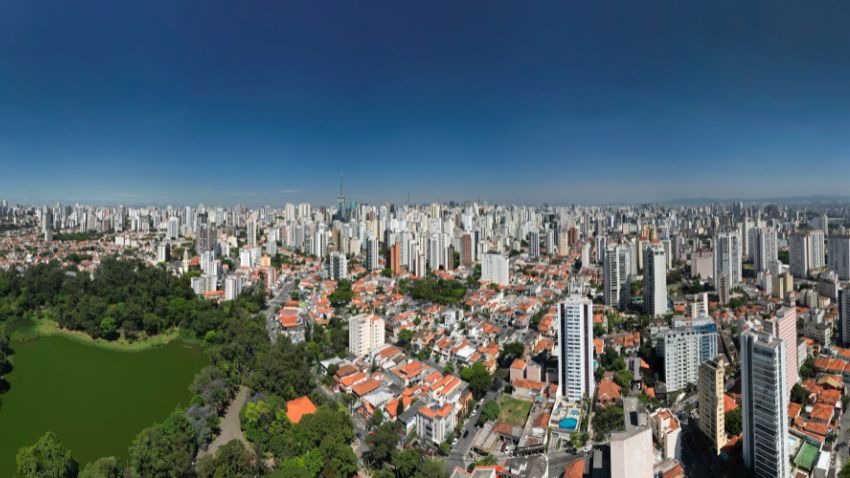
Brazilian Healthcare Demystified: A Guide For Expats
Brazil, with its vibrant culture, diverse landscapes, and warm people, presents an alluring prospect for expats seeking a new adventure or a change...
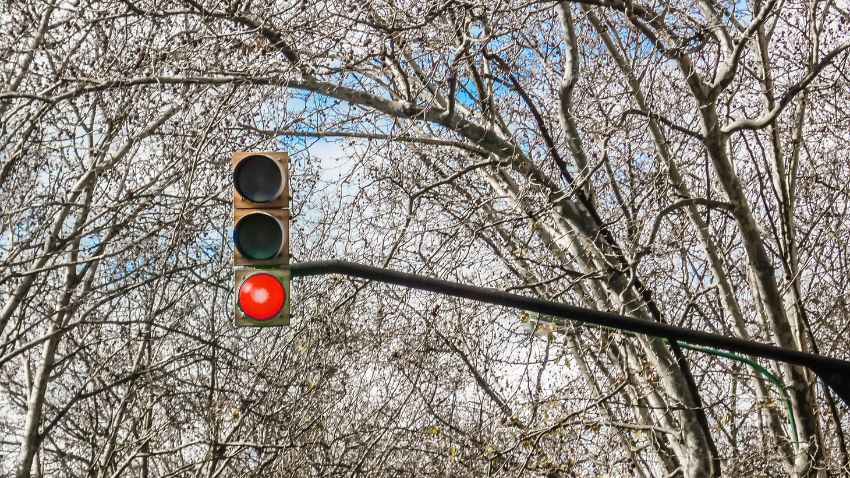
Destination Danger: 7 Countries Expats Should Steer Clear Of
In an increasingly interconnected world, the prospect of living abroad as an expat is an increasingly enticing one. Whether it’s for career...
- WEATHER ALERT Flood Warning Full Story
Birth tourism controversy: Foreign women travel to deliver babies, gain U.S. citizenship for newborns

CHICAGO (WLS) -- Women are traveling thousands of miles from their home countries to have their babies in the United States so their newborns go home U.S. citizens. It's called birth tourism and experts say it is a growing trend here and across the country.
The 14th amendment of the U.S. Constitution essentially says you become a U.S. citizen if you are born on American soil.
Local OB-GYNs tell the I-Team they have patients who come here from other countries and pay out of pocket to deliver their babies in the United States.
A May 2019 federal government report shows the U.S. birth rate is at a 32-year-low. According to the Center for Immigration Studies, an organization known for favoring low immigration, there are tens of thousands of people who list a foreign address on their child's birth certificate.
The group estimates there are anywhere between 35,000 to hundreds of thousands of birth tourism births every year in the United States.
The U.S. is one of only 35 countries in the world that recognizes birthright citizenship.

Foreign websites advertise packages costing up to $150,000 that include medical costs, high-end accommodations and help with paperwork to obtain U.S. passports for the newborns. These companies are touting U.S. citizenship will provide easier access to U.S. universities and how American born children can sponsor their parents' immigration to the United States once they turn 21-years-old.
Just before the mid-term elections, President Donald Trump said he wanted to issue an executive order ending birthright citizenship for children born in the U.S. to unauthorized immigrant parents, but made no mention of "birth tourism" babies.
"I think the lack of attention at least on a political level is intentional," said Sonia Canzater, an attorney with the O'Neill Institute at Georgetown University.
She is a U.S. citizen based on being born here to immigrant parents. Canzater told the I-Team she believes people are coming to America to "get citizenship for their children kind of more as accessories."
Federal raids in Southern California and a several year investigation led to a number of birth tourism business workers being charged in January with fraud for instructing women to lie on visa applications and hide their pregnancies from airport customs agents.
"It does feed into the larger organizations that are coaching these people to lie that are absolutely gaming the system that are really set up for illegal purposes," said ABC7 legal analyst Gil Soffer.
There is no data on how prevalent birth tourism is here. All of the major hospitals in metro Chicago either denied or ignored the I-Team's requests for interviews.
Officials at the Department of Homeland Security and U.S. Immigration and Customs Enforcement also ignored our repeated requests for comment.
Related Topics
- FAMILY & PARENTING
- BABY DELIVERY
- IMMIGRATION
- PREGNANT WOMAN

Roadblock holding up installation of US Attorney in Chicago

Scam callers using bank caller IDs, real phone numbers to steal money
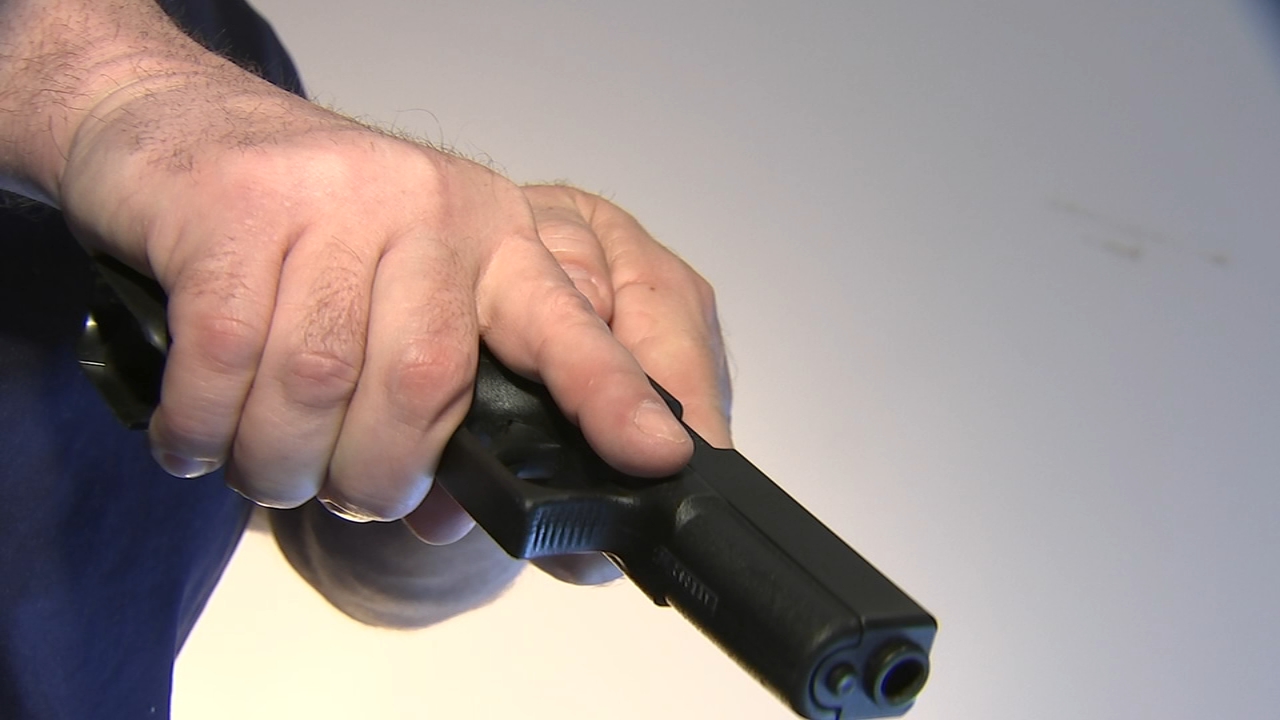
Retired law enforcement duel with state over CCL privileges

Chicago man convicted of murder trying to clear name, attend school
Top stories.

Man fatally shot outside Chatham Kids Foot Locker

$30M stolen from storage facility on Easter Sunday

Officials aim for NASCAR race street closures to be less disruptive

No, migrants are not driving a surge in violent crime as Trump claims
Elburn veterinarian pleads not guilty to child porn charges
Chicago Weather: Morning clouds then clearing Friday
North suburban senior home fire caused by construction crew

Birth Tourism: Benefits of Giving Birth Abroad & Birthright Citizenships
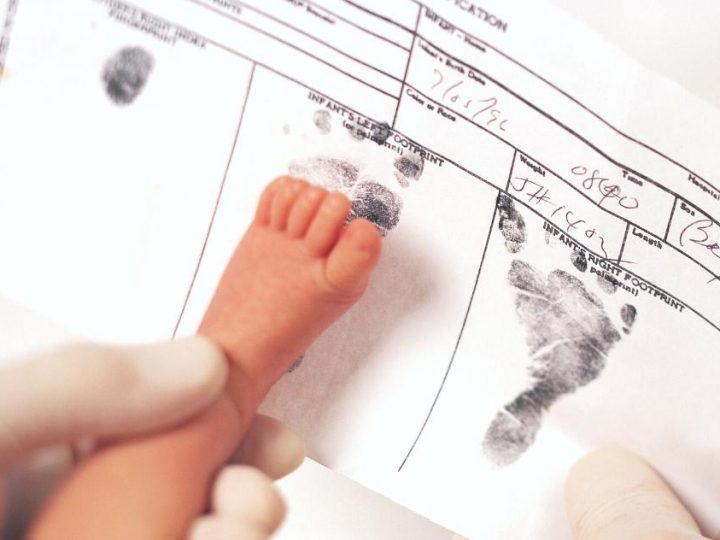
“I guess your kids won’t be US presidents” is what I often hear from people when they find out that neither of my children was born in the US. I usually smile, because surely they won’t be the next president, but instead, they’ll get a lot more benefits in their adult lives than American kids born in the US.
There are a number of ways to get second citizenship and passport: marriage, investment, or years of waiting. However, many forget about an easy one: having a baby in a foreign country.
Parents have a unique opportunity to choose the best country to give birth and give a child another passport. In fact, some countries will even grant the parents (or even grandparents) citizenship as well.
l’ll tell you how and where you can take advantage of birthright citizenship. In fact, I have first-hand experience doing it myself 🙂
Which Countries Have a Birthright?
When it comes to determining a child’s citizenship at birth, countries usually apply one of two rights: jus soli or jus sanguinis .
Jus soli , also known as birthright, grants citizenship merely on the basis of being born “on the soil” of the country in question. There are obviously special circumstances like Armed Forces territories, Embassy grounds, or no man’s lands, but the rule is fairly simple.
Jus sanguinis determines the child’s citizenship based on the parents’ nationality. Not all nationalities can be transmitted to children easily or automatically – for example, if you’re a US citizen but only lived in the US as a child and then left your kids aren’t eligible for US citizenship automatically (see the rules for CRBA ).
The most common example of birthright is obviously the United States. Many people enter the US to give birth to a child who automatically becomes an American citizen as they’re born on US soil.
While the parents aren’t eligible to stay and get residency in the US, the child could return when they’re 18 years old and sponsor the relatives for a green card when they turn 21. Naturally, it involves a lot of money and paperwork and it’s not an easy process when the “anchor child” has no connections in the US, but entirely legally possible.
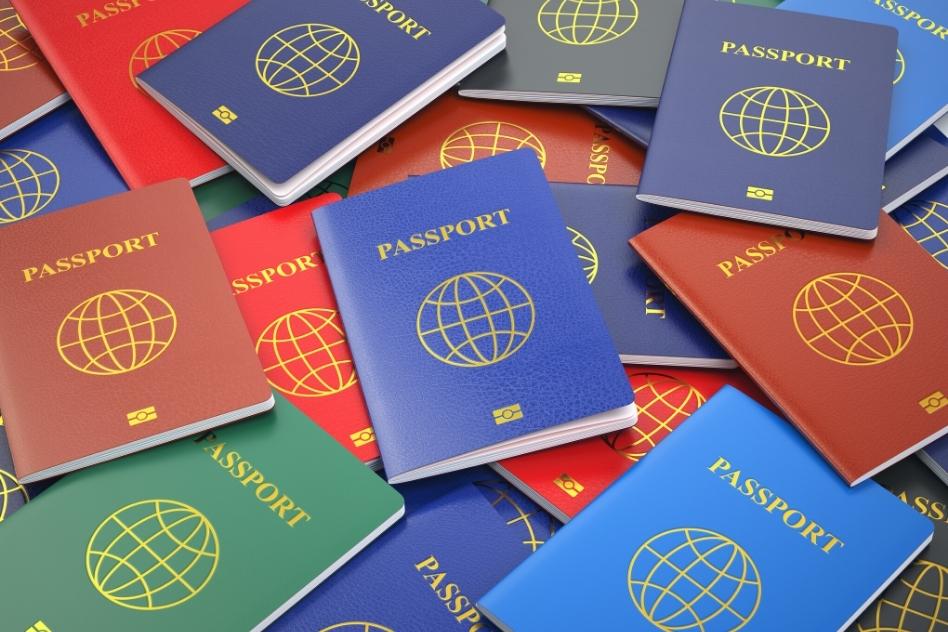
Why Take Advantage of Birthright?
Cost is something that many people think about first, as it’s undeniably cheaper to pay for the hospital birth anywhere outside of the US and get better care. After all… the US has a terrible rate of maternal deaths, especially in some states and people of color.
My personal reasons were that my child can invest in a property in the country without having to lease and jump through hoops and if everything falls apart we all can get citizenships as well. On top of better medical care and lower costs.
Something many Americans or people who push for kids to get American citizenship don’t think about is taxation. Becoming American citizen ties you with the tax system forever, unless you renounce your citizenship for which you need to pay for. It can also screw you when it comes to starting a life elsewhere. How come?
Many non-US banks are wary of doing business with US citizens due to the increased reporting requirements imposed by FATCA and the risk of penalties that apply if those banks fail to comply with the requirements of the Act (and their associated inter-governmental agreements).
In fact, many foreign banks are refusing to do business with US citizens because the risks and costs outweigh the benefits.
It really sucks if you can’t get a home loan (and for example, European mortgage rates can be below 1% which is a huge gain compared to the US) or an investment or even a basic bank account to receive your salary and pay your bills or whatever.
With the advent and proliferation of FATCA, having a non-US place of birth becomes even more valuable. Even if you have a second passport, a US place of birth gives away the fact that you’re a US citizen no matter what, unless you can produce a renunciation certificate.
However, with a non-US place of birth on a non-US passport, there’s nothing advertising one’s US citizenship. If I show up with my kids to Italy tomorrow with my European passport no one would suspect me or my kids of having any ties to the US since they were born in other countries.
You might need to disclose this information, but you can surely fly under the radar that way.
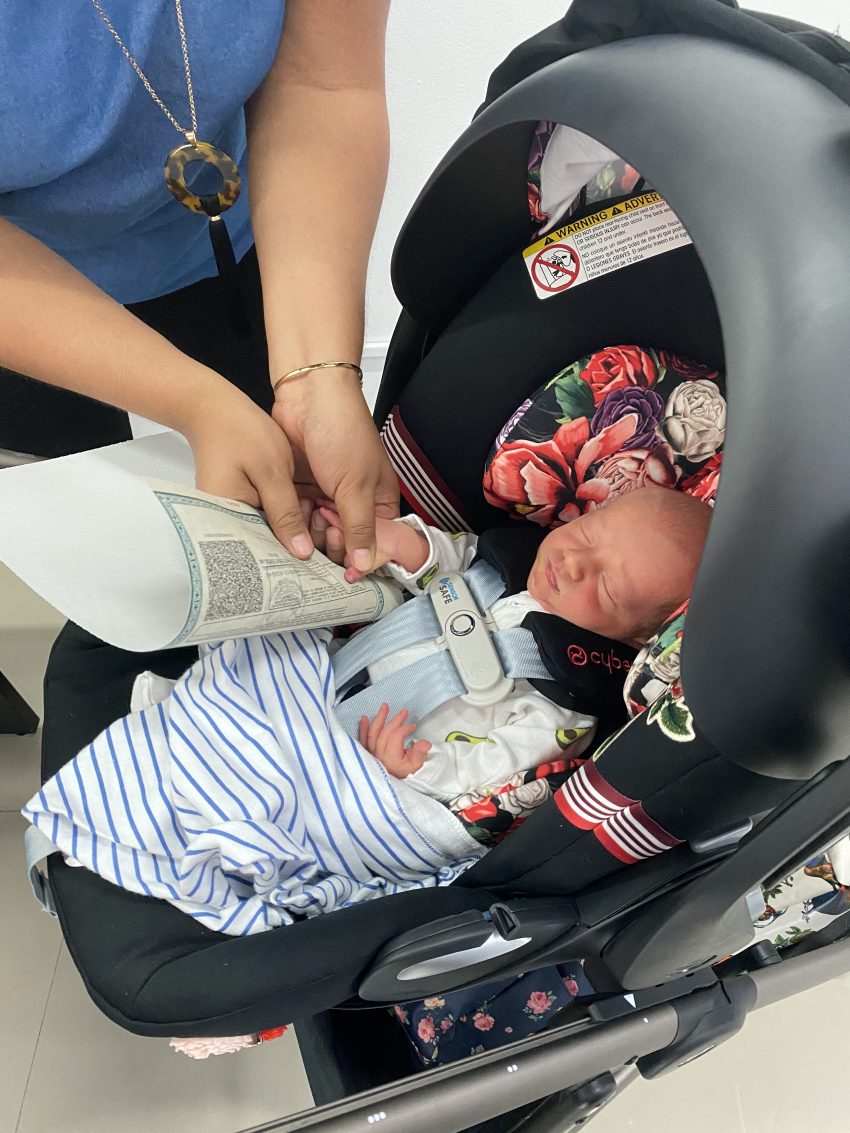
What Countries Offer Birthright Citizenship?
Thinking of having a baby soon? Some countries allow unrestricted jus soli which means parents can just enter on a tourist visa. Others only allow it under special conditions like eg. parents have to live in a country for a year or have a temporary work permit. Full birthright regardless of parents’ status:
France, Luxembourg and Portugal have conditional options only
- United States
- El Salvador
- Antigua and Barbuda
- Saint Kitts and Nevis
- Saint Lucia
- Saint Vincent and the Grenadines
- Trinidad and Tobago
Best countries for birthright citizenship
1. Chile – the country acts on jus soli for anyone. Chile secures 6th place on the best travel document globally.
2. Mexico – the country acts on jus soli for anyone and family members automatically receive permanent residency. With a Mexican passport, one can have access to almost 140 countries.
3. Brazil – provides affordable costs of birth for tourists and strict jus soli. Parents can easily obtain a residency as well. Brazil offers access to approximately 150 countries.
4. Canada – acts on jus soli. The passport gives access to 190 countries visa-free countries.
5. Barbados – Barbadian citizens can travel across 140 countries without a visa with special access to the United Kingdom.
Share this:
Notify me of new posts by email.
Friday 26th of January 2024
Hello Anna, Thank you for these interesting enlightenment on "Jus Soli".
I have always thought about it but never knew what to classify it as.
We had our first baby (Uriel) December 26th, 2022 was unable to get her this second passport by birth due to lack of clarity on how to go about it.
Just three days ago I and my wife had planned to conceive for second baby and in my checklist I added "Birth Tourism and Country" before I stumbled on blog.
Apart from Mexico and Costa Rica, is it possible for parents from Nigeria to get permanent residency rights in Canada as well? Your suggestion and/or advice will be helpful. Thank You.
AnnaEverywhere
Which country was your first baby born in?
And in regards to Canada, no. Your baby would be Canadian, but you won't get a right to stay in the country.
Wednesday 16th of August 2023
What countries give citizenship to the parents as well?
Anna Karsten
Friday 18th of August 2023
Mexico, Brazil and Costa Rica for sure. However, it's not instant, you still need to be there for the indicated amount of time and pass the citizenship and language test.
Saturday 29th of October 2022
Thanks for for this write up. What about Brazil? How safe is it for a mother delivering her baby in Brazil and are parents given a permanent resident card?
What do you mean how safe it is? In terms of hospitals they have excellent medical facilities.
Thursday 17th of February 2022
Please which of these countries you listed give parents permanent residency rights by way of child birth?
Wednesday 23rd of February 2022
@Anna Karsten,
Hi, what are the requirements for parents to get permanent residency by their child being born in Mexico and how long would it take?
Saturday 19th of February 2022
Mexico and Costa Rica for sure.
Thursday 16th of December 2021
My parents both were naturalized American in 1946 but still had Polish citizenship when I was born in the United States in 1945. Is there any path for me to acquire Polish citizenship now without moving there or any other complicated methods?
Poland makes it relatively easy to get citizenship via descent. It's a different process than birthright though, as you've been born in the US.
If your parents lived in Poland before 1920 and maintained their citizenship until you were born then yes, you qualify for citizenship. You need to collect the evidence - eg. their Polish passports, address, any documents from Poland, then send it and the process will take 1-2 years. It's a myth that you need to speak Polish - this rule doesn't apply to citizenship by descent, just to immigrants, and I personally know someone who got his knowing only 3 words in Polish.
- Newsletters
Site search
- Israel-Hamas war
- 2024 election
- Solar eclipse
- Supreme Court
- All explainers
- Future Perfect
Filed under:
- Immigration
- Social Policy
Birthright citizenship and "anchor babies," explained
Share this story.
- Share this on Facebook
- Share this on Twitter
- Share this on Reddit
- Share All sharing options
Share All sharing options for: Birthright citizenship and "anchor babies," explained
/cdn.vox-cdn.com/uploads/chorus_image/image/47005426/GettyImages-484340746.0.jpg)
Donald Trump is talking about "anchor babies," and now Jeb Bush is doing it too ( video here ) as the Trump effect pushes mainstream Republicans into adopting the discourse of anti-immigrant activists. Hillary Clinton's campaign smells an opportunity to slam Bush for adopting Trump's rhetoric, while more and more Republicans are questioning the 14th Amendment's guarantee of birthright citizenship.
Se llaman "bebés," "niños," o "ciudadanos." https://t.co/ofxEG6Za00 — Hillary Clinton (@HillaryClinton) August 20, 2015
And yet lurking behind the Latino politics issue is the largely separate, though legally related, phenomenon of "birth tourism" primarily related to Chinese citizens rather than would-be migrants from Latin America. Pro–immigration reform Republicans are seeking to highlight this topic as a means of showing support for immigration restriction without alienating Latino voters — but as the Clinton campaign's glee shows, that's a narrow and difficult plank to walk.
What is an "anchor baby"?
This is not a legal term, nor one that anyone would non-ironically self-identify with, nor one that is used in immigrant communities. But the idea, broadly speaking, is that because a child born on US soil is automatically a United States citizen, adult non-citizens are having US-born children in order to manipulate the immigration system. A person who came to the United States illegally before giving birth — or who gave birth while here on a temporary visa — might be less likely to be deported later on because her child is a US citizen.
When the US-born baby grows up, she could even deploy her status as a US citizen to petition for legal immigration papers for her parents on family unification grounds.
The idea is that the baby exists as an "anchor" to keep the family in America.
Why is the term considered offensive?
People find the term objectionable on two grounds.
One is that it seems to imply, contrary to the law and the Constitution, a two-tiered scale of citizenship in which some people are real US citizens and others are mere grown-up anchor babies.
The other is that while it is unquestionably true that babies are born to both unauthorized migrants and to temporary visa holders, the implication that such babies are typically the product of a cynical, decades-long effort to manipulate the immigration system rather than the normal bonds of familial affection is a little far-fetched and insulting.
What is birthright citizenship, and where does it come from?
The 14th Amendment to the US Constitution states, "All persons born or naturalized in the United States, and subject to the jurisdiction thereof, are citizens of the United States and of the State wherein they reside."
This was, at the time, primarily intended to nullify the Supreme Court's infamous 1857 ruling in Dred Scott v. Sandford, which ruled that no African American could become a citizen regardless of birth.
In the mid-19th century there were no legal restrictions on immigration to the United States, so there was no particular legal question about the citizenship status of the children of people who came to the US without legal authorization to permanently reside here. Then Chinese Exclusion Acts were passed in the 1880s, and in 1894 a man named Wong Kim Ark, who'd been born in San Francisco, came back to the US after a visit to China. But immigration officials wouldn't let him in. He protested that he was a citizen; the federal government used the case to lay out the position that (in the words of historian Erika Lee ) "American-born Chinese could not be considered citizens if their parents were not, and could never become, naturalized citizens."
The case made its way to the Supreme Court, where the justices ruled 6-2 in favor of Wong, stating that "the right of citizenship ... is incident to birth in the country."
As immigration law and immigrant flows have changed over time, this legal principle has carried the day. The plainest reading of the 14th Amendment is that if you are born in the United States you are a United States citizen, and the immigration status of your parents is not relevant.
Does having a baby on US soil really protect you from deportation?
No. It is true that given the bad publicity involved, the parent of a US citizen is less likely to be deported than a childless unauthorized migrant would be. But 200,000 parents of US citizens were deported from July 2010 to September 2012.
Birthright citizenship is a principle of constitutional law, but leniency for the parents of US citizens is more or less a discretionary aspect of immigration enforcement.
Since the resources available for apprehending and deporting unauthorized migrants have varied over time and have always been inadequate to the task of deporting millions of people, the ins and outs of enforcement practice have varied considerably and will continue to vary.
How many US citizens have unauthorized parents?
As of 2010, 4.5 million US citizens under the age of 18 had at least one parent who was an unauthorized immigrant. (It's entirely possible that the number has changed as the unauthorized immigrant population has gotten more settled over the past few years.)
That likely includes an awful lot of American school kids. As of 2012, 6.9 percent of all students enrolled in kindergarten through 12th grade in the US had at least one unauthorized immigrant parent; 5.5 percent of all K-12 students were US citizens with at least one unauthorized immigrant parent. That's one out of every 18 school-age US citizens.
Is birthright citizenship common internationally?
There is, of course, a great deal of international variation in citizenship law. But broadly speaking, countries in the Western Hemisphere tend to emphasize place of birth (jus solis), whereas countries in the Old World have traditionally emphasized ancestry (jus sanguis).
:no_upscale()/cdn.vox-cdn.com/uploads/chorus_asset/file/3988142/Screen%20Shot%202015-08-21%20at%2010.56.03%20AM.png)
Jus soli versus jus sanguis.
( His Male Lover )
Part of the difference is that many Old World countries regard themselves as, in part, custodians of an ethnic or national heritage that transcends geography.
For example:
- Israel is a Jewish state and extends to Jewish people around the world the right to "return" to Israel and become an Israeli citizen.
- Finland is a land of Finnish people and extends a similar right to Finnish-speaking ethnic Finns residing in Russia.
- A 2010 Hungarian law grants Hungarian citizenship to hundreds of thousands of ethnic Magyars living on the territory of the pre–World War I kingdom of Hungary (primarily in Slovakia).
- Ethnic Greeks have lived outside the current boundaries of the Hellenic Republic for thousands of years, and they can become Greek citizens by volunteering to serve in the Greek armed forces .
Rules along these lines are common in Europe and often shift in nature. Throughout its existence as a country, West Germany offered citizenship to ethnically German residents of Eastern Bloc countries on fairly generous terms — a legacy of post–World War II boundary adjustments and of the extreme practical difficulty of emigrating from communist states. Since 1990, these rules have been repeatedly tightened to require proof of German language skills and cultural affinity for Germany due to a perception that citizenship privileges were being abused by residents of poor post-communist countries who weren't "really" German in relevant ways.
At the same time, many immigrant-heavy European states — including France, Germany, and Sweden — have changed their laws in recent years to incorporate more elements of the jus soli approach.
What's this about birth tourism?
"Anchor baby" rhetoric has, historically, referred to children born to long-term unauthorized residents of the United States, typically immigrants from Mexico or elsewhere in Latin America. That rhetoric is toxic in the Latino community, where obtaining legal status and a path to citizenship for such long-term residents of the United States is a key political demand.
Republicans who favor immigration reform — such as Jeb Bush and Marco Rubio — have been trying lately to shift the conversation to a different phenomenon referred to as "birth tourism," in which pregnant women (typically Chinese) enter the country legally on short-term tourist visas and give birth to children on US soil.
As best we can tell, the "birth tourism" industry caters overwhelmingly to Chinese parents-to-be, who can get tourist visas to stay in the US for up to six months. The Chinese government says 10,000 babies were born in the US to Chinese tourist parents in 2012; more recent, unofficial estimates are higher. (There's a very thorough recent feature about this from Benjamin Carlson of Rolling Stone .)
This is definitely an abuse of the tourist visa, and the United States isn't turning a blind eye to this. Embassy officials and Customs and Border Protection agents have started questioning Chinese women who look like they could be pregnant. There are also stateside crackdowns on the "hotels" where birth tourists stay. Since lying to them is illegal, parents-to-be who lie through the interview are breaking the law. But fundamentally, they are holding legal visas and therefore are in the United States legally.
In general, birth tourists do not appear to be interested in immigrating to the United States. They typically return to China with their babies. What they are doing is obtaining a future right for their child to move to the United States — a valuable commodity in general, and a potentially useful hedge against hypothetical political instability in China.
How could birthright citizenship be reformed?
There are basically three approaches:
- The Supreme Court (or some future set of justices) could rule that people who are in the United States without permission are not "subject to the jurisdiction thereof" and that therefore, their children are not US citizens within the meaning of the 14th Amendment. This somewhat odd reading of the text would be bolstered by the observation that neither the authors of the amendment nor the justices in the Wong Kim Ark case had unauthorized migration in mind.
- Sen. David Vitter and Rep. Steve King have bills in Congress that purport to "clarify" the scope of birthright citizenship and take it away from the children of unauthorized migrants. This is fine politics as far as it goes, but is not really how the US legal system works.
- Last, a 28th Amendment to the Constitution could be passed and ratified in order to alter US citizenship law. Amending the Constitution is, however, a difficult political lift.
One irony of the situation is that while the broadest political consensus seems to exist for a crackdown on birth tourism, it's legally the hardest to address. The Supreme Court could rule that unauthorized immigrants aren't subject to the jurisdiction of the United States, but birth tourists aren't in the United States illegally. A constitutional amendment could specify a minimum period of parental residency (this is how European countries with restricted jus solis do it), but constitutional amendments are difficult to pass.
Alternatively, the US could pass a blanket ban on pregnant women obtaining temporary visas to enter the United States. But this could have negative consequences for international commerce, and would invite retaliation by foreign governments. A narrow birth tourism fix, moreover, would not address the political problem that Bush and Rubio are faced with, namely a desire to signal sympathy with Trump's constituency without alienating Latino voters.
What's a counterintuitive pro-immigration argument against birthright citizenship?
Fans of Slatepitching will enjoy Will Wilkinson's argument on this score .
His point is that ending birthright citizenship would open the door, politically speaking, to a considerably more generous approach to future temporary guest workers. Such workers would come to the United States for a year or five, pay taxes, and then return home without ever becoming eligible for most of the country's expensive social welfare programs. They would be employed (by definition) rather than retired or living on welfare, and if entry were restricted to adults they wouldn't be a cost center for local school systems.
But to make it work you have to be able to kick out the "guests," which means no "anchor babies," which means no birthright citizenship.
It's an interesting argument, and if you want to agree with current trends in Republican Party thinking without personally associating yourself with demagoguery it's probably the best you are going to do. But it has a bunch of flaws:
- It's questionable this narrow consideration about welfare state sustainability is actually what drives opposition to immigration. Concern about assimilation and wage impact would be more severe with a larger-scale guest worker program.
- There is still the practical problem of a child who has one guest worker parent and one parent who is a citizen or a US legal permanent resident.
- The practical experience of other democracies with this approach has not been very successful, and countries where it was formerly widespread (Germany, for example) have shifted in more of an American direction.
Will you help keep Vox free for all?
At Vox, we believe that clarity is power, and that power shouldn’t only be available to those who can afford to pay. That’s why we keep our work free. Millions rely on Vox’s clear, high-quality journalism to understand the forces shaping today’s world. Support our mission and help keep Vox free for all by making a financial contribution to Vox today.
We accept credit card, Apple Pay, and Google Pay. You can also contribute via
Next Up In Politics
Sign up for the newsletter today, explained.
Understand the world with a daily explainer plus the most compelling stories of the day.
Thanks for signing up!
Check your inbox for a welcome email.
Oops. Something went wrong. Please enter a valid email and try again.

Vox podcasts tackle the Israel-Hamas war

Nebraska legislators reject proposal to help Trump win the Electoral College
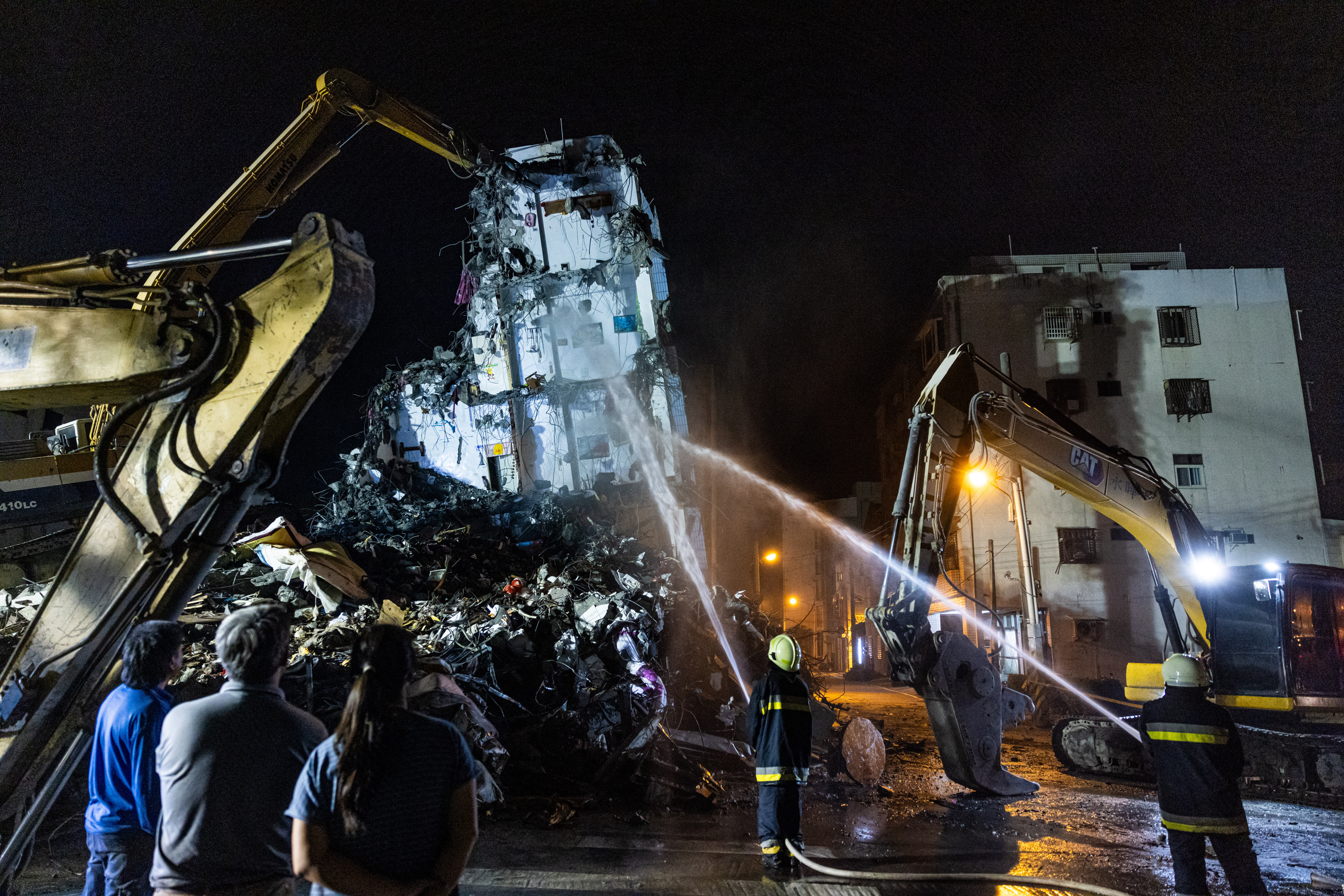
Taiwan’s earthquake preparedness saved a lot of lives — and prevented a catastrophe for the global tech economy
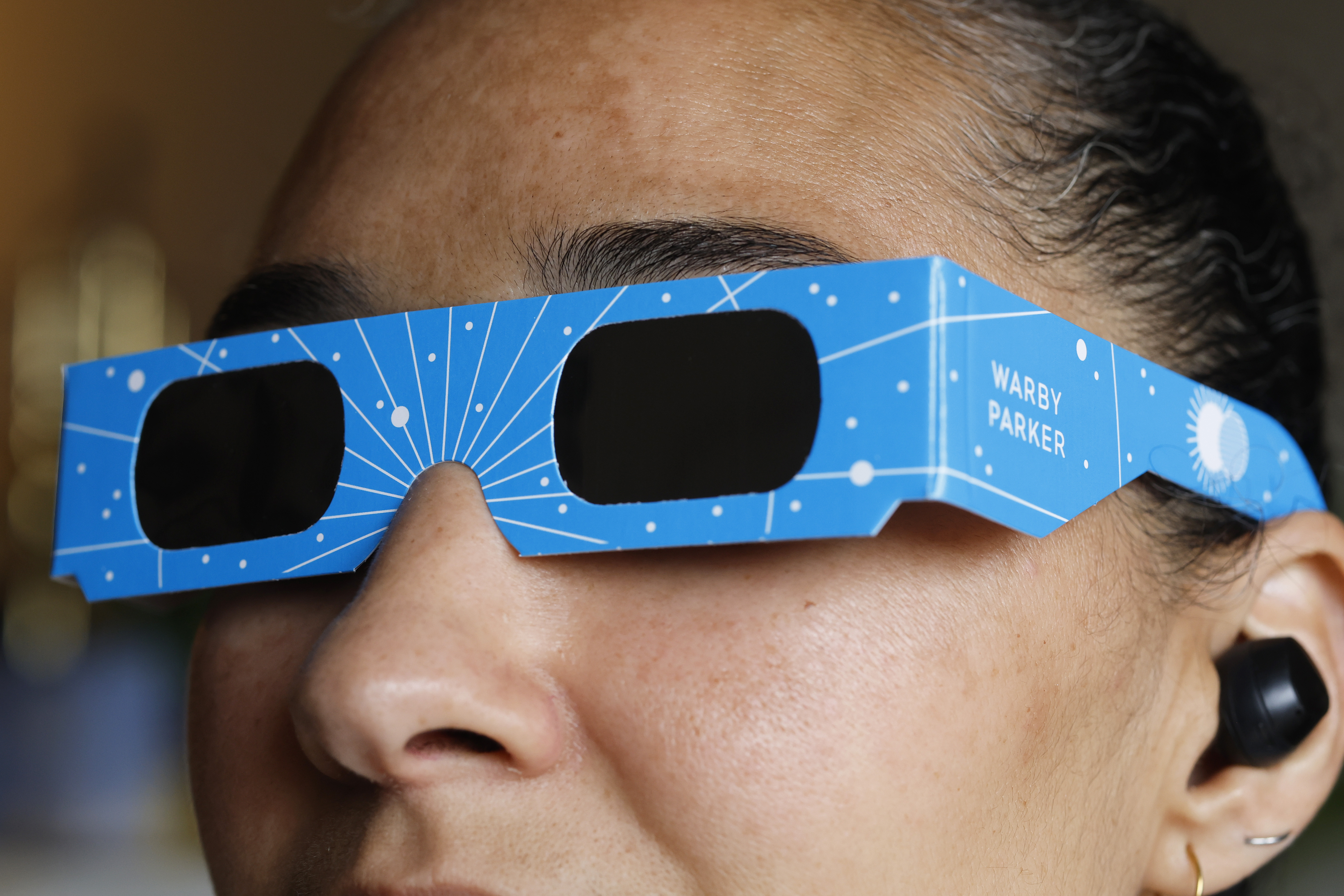
“Equivalent to having 50 Super Bowls”: The staggering — and lucrative — scale of eclipse tourism

Trump has set up a perfect avenue for potential corruption

She’s been chasing solar eclipses for three decades. What’s she after?
- Election 2024
- Entertainment
- Newsletters
- Photography
- Personal Finance
- AP Buyline Personal Finance
- Press Releases
- Israel-Hamas War
- Russia-Ukraine War
- Global elections
- Asia Pacific
- Latin America
- Middle East
- Election Results
- Delegate Tracker
- AP & Elections
- March Madness
- AP Top 25 Poll
- Movie reviews
- Book reviews
- Personal finance
- Financial Markets
- Business Highlights
- Financial wellness
- Artificial Intelligence
- Social Media
US imposes visa rules for pregnant women on ‘birth tourism’
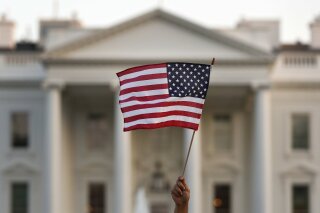
FILE - In this Sept. 2017 file photo, a flag is waved outside the White House, in Washington. The Trump administration is coming out with new visa restrictions aimed at restricting a practice known as “birth tourism.” That refers to cases when women travel to the United States to give birth so their children can have U.S. citizenship. (AP Photo/Carolyn Kaster)
- Copy Link copied
WASHINGTON (AP) — The Trump administration is imposing new visa rules aimed at restricting “birth tourism,” in which women travel to the United States to give birth so their children can have U.S. citizenship. The regulations, which take effect Friday, address one of President Donald Trump’s main political priorities.
The regulations seek to chip away at the number of foreigners who take advantage of the constitutional provision granting“birthright citizenship” to anyone born in the United States, a particular peeve of Trump’s. Under the new rules, pregnant applicants will be denied a tourist visa unless they can prove they must come to the U.S. to give birth for medical reasons and they have money to pay for it or have another compelling reason — not just because they want their child to have an American passport.
Officials said that consular officers will not be asking all female visa applicants of child-bearing age whether they are pregnant or intend to get pregnant. Rather, they said consular officers would ask the question only if they had reason to believe the applicant is pregnant and likely or planning to give birth in the U.S.
Visual cues such as appearing to be pregnant or listing “medical treatment” as a reason for wanting to travel to the United States might trigger such questioning, the officials said. Even if a woman is found to be pregnant and likely to deliver her child in the United States, she could still be granted a visa if she was able to demonstrate a valid reason for the travel such a visiting an ailing relative or attending a business meeting or conference, they said.
Officials said the rule will not apply to foreign travelers coming from any of the 39 mainly European and Asian countries enrolled in the Visa Waiver Program, which allows citizens of those countries to come the U.S. without a visa for temporary stays. The rule will only apply to applicants for so-called “B” class visas that permit short-term stays for business or pleasure.
“Closing this glaring immigration loophole will combat these endemic abuses and ultimately protect the United States from the national security risks created by this practice,” White House press secretary Stephanie Grisham said in a statement. “It will also defend American taxpayers from having their hard-earned dollars siphoned away to finance the direct and downstream costs associated with birth tourism. The integrity of American citizenship must be protected.”
The practice of traveling to the U.S. to give birth is fundamentally legal, although there are scattered cases of authorities arresting operators of birth tourism agencies for visa fraud or tax evasion. And women are often honest about their intentions when applying for visas and even show signed contracts with doctors and hospitals.
The State Department “does not believe that visiting the United States for the primary purpose of obtaining U.S. citizenship for a child, by giving birth in the United States — an activity commonly referred to as ‘birth tourism’ — is a legitimate activity for pleasure or of a recreational nature,” according to the new rules, which were published Thursday in the Federal Register.
Birth tourism is a business where companies for a steep fee offer foreign women the chance to come the U.S. on a tourist visa, have a baby, get medical care, get citizenship, have a place to stay with their newborn, and then leave. It’s distinct from what Trump and his allies deride as “anchor babies,” referring to poor women who enter the U.S. illegally at the U.S.-Mexico border to give birth to a child and then stay in the U.S. illegally. But the end result is the same: a coveted U.S. passport.
The Trump administration also has turned away pregnant women coming over the U.S.-Mexico border as part of a broader immigration crackdown. Those women were initially part of a “vulnerable” group that included others like small children who were allowed in, while tens of thousands of other asylum seekers have been returned to Mexico to wait out their cases.
The Trump administration has been restricting all forms of immigration, but the president has been particularly troubled by birthright citizenship. Trump has railed against the practice and threatened to end it, but scholars and members of his administration have said it’s not so easy to do.
Birth tourism is a lucrative business in both the U.S. and abroad. Companies take out advertisements and charge up to $80,000 to facilitate the practice. Many of the women travel from Russia and China to give birth in the U.S.
The U.S. has been cracking down on the practice since before Trump took office.
“An entire ‘birth tourism’ industry has evolved to assist pregnant women from other countries to come to the United States to obtain U.S. citizenship for their children by giving birth in the United States, and thereby entitle their children to the benefits of U.S. citizenship,” according to the State Department rules.
Elena Balmiler, the founder of the Florida firm AIST USA, which caters to Russian mothers-to-be, said she did not expect the new rules would stop her business. She said her business gets about 60 queries a month and had 45 clients last year, because Trump has been unable to end birthright citizenship.
“So far it has resulted in nothing but intentions, guesses, publications and projections,” she said. “Not a single person has changed their mind to fly to the USA because Trump plans to stop (birthright) citizenship.”
There are no figures on how many foreign women travel to the U.S. specifically to give birth. The Center for Immigration Studies, a group that advocates for stricter immigration laws, estimated that in 2012 about 36,000 foreign-born women gave birth in the U.S. and then left the country.
“This rule will help eliminate the criminal activity associated with the birth tourism industry,” according to the rules. “The recent federal indictments describe birth tourism schemes in which foreign nationals applied for visitor visas to come to the United States and lied to consular officers about the duration of their trips, where they would stay, and their purpose of travel.”
Associated Press writer Ellen Knickmeyer contributed to this report.

Illegal Border Crossings Today:

Birth Tourism
By Pawel Styrna | March 2020 | Click here for the Full PDF Version
The Issue
Birth tourism is a term which refers to the practice of foreign mothers-to-be traveling to the United States on tourist visas for the specific purpose of giving birth in the U.S. in order to obtain U.S. citizenship for their child. The secondary goal of the mother may be to eventually secure legal permanent resident status, also colloquially known as a “green card.”
It is estimated that 33,000 babies are born to women who arrived on tourist visas every year. While this may not seem like a large number, the abusive practice has been trending upward in recent years. Birth tourism is not explicitly mentioned in the Immigration and Nationality Act, but the State Department recently clarified its policy on visa issuance in light of the risks to national security posed by the practice.
Once U.S. born children turn 21, they can also petition to bring their parents to the country as legal permanent residents. As “immediate relatives,” they do not have to wait in line like other immigrants. For foreign citizens, there are other benefits as well. As one Turkish birth tourist admitted , speaking of her daughter: “I don’t want her to deal with visa issues — American citizenship has so many advantages.” However, it is highly doubtful whether the framers of the U.S. Constitution or the authors of the 14th Amendment would have considered convenient, hassle-free entry for foreign nationals a legitimate purpose of American citizenship.
There are important reasons why birth tourism should concern the average American, particularly with regard to national security and potential wrongdoing by foreign actors. Moreover, as FAIR President Dan Stein points out : “Shady entrepreneurs are profiting handsomely from this practice, American taxpayers are stuck with costs, and the value of U.S. citizenship is further diminished.”
Recent Developments
On January 23, 2020, the U.S. Department of State implemented a rule giving visa officers more discretion to deny a foreign national a B nonimmigrant visa, which is used for business or pleasure, if it is believed the sole purpose of travel is giving birth in the U.S. The Department of State argues that “this rule reflects a better policy, as birth tourism poses risks to national security,” and because “the birth tourism industry is also rife with criminal activity, including international criminal schemes.” The rule also requires visa applicants seeking medical treatment in the U.S. to demonstrate to the satisfaction of a consular officer that they have made arrangements for medical treatment and are able to pay for it. The rule contains several exceptions, such as having a dying relative in the country or a U.S. citizen husband. It does not apply to the 39 countries participating in the Visa Waiver Program.
Why Curbing Birth Tourism Is Necessary
Birth tourism is one of the more brazen abuses of birthright citizenship. The Trump administration has moved to clamp down on this practice because it incentivizes criminal activity and presents a threat to the national security of the United States.
According to the State Department’s new rule, “reporting from U.S. embassies and consulates has documented trends showing an increasing number of B visa applicants whose stated primary purpose of travel is to give birth in the United States.”
The rule also brought attention to “the national security vulnerability that could allow foreign governments or entities to recruit or groom U.S. citizens who were born as a result of birth tourism and raised overseas, without attachment to the United States, in manners that threaten the security of the United States.”
Birth tourism is a criminal business activity that is promoted by many overseas companies – there are approximately 500 in China alone. The birth tourism industry can involve complicated schemes and millions of dollars in criminal proceeds. For example, on January 31, 2019, federal prosecutors announced indictments against 19 people with being involved with the operation of three birth tourism schemes in Southern California. The operators of the “maternity” or “birthing houses” were charging their clients tens of thousands of dollars, and, in one case, “more than $3.4 million in international wire transfers” were received within the span of two years. They also coached their Chinese customers about how to lie to U.S. officials and hide their pregnancies. Furthermore, “the indictments allege that many of the Chinese birth tourism customers failed to pay all of the medical costs associated with their hospital births, and the debts were referred to collection.”
Because the practice is clandestine, there is no definitive breakdown by country of origin . However, according to CIS, there is considerable evidence that many birth tourists come from China, Taiwan, South Korea, Nigeria, Turkey, Russia, Brazil, and even Mexico. Some of these nations – especially Russia and China – have long histories of anti-American espionage activities.
The Solution
The State Department’s new rule cracking down on the abuse of birthright citizenship by birth tourists is a welcome development. However, as in the case of the children of illegal aliens benefiting from automatic U.S. citizenship, it is necessary to reform birthright citizenship. While legislation or an executive action clarifying that automatic birthright citizenship does not apply to individuals born on U.S. soil to illegal aliens and temporarily-present tourists is necessary, it will likely be challenged in court, and, hopefully, appealed. That, in turn, would give the Supreme Court an opportunity to weigh in on an issue on which it has never ruled directly.
For more information, please see FAIR’s issue brief, Birthright Citizenship and Illegal Immigration.
- Mission, Vision, Values
- Career Opportunities
- Meet The Team
- Our Spokespeople
- Meet the President
- Board of Directors
- Immigration Reform Law Institute
- Immigration Issues
- Legal Immigration
- Illegal Immigration
- Border Security
- Sanctuary Policies
- National Security
- Workforce & Economy
- Population & Environment
- Societal Impact
- Popular Topics
- Immigration Infographics
- Illegal Alien Crime
- Companies That Hire H-1B Workers
- History of U.S. Immigration Laws
- Legislative Articles
- Legislation and Policy
- Presidential Administration
- Federal Legislation
- State & Local Policy
- FAIR Take Articles
- Press Releases
- Published Opinion
- Newsletters
- Media Inquiries
- Recent Studies
- Immigration Parole: The Executive Branch’s Shadow Immigration System
- Country Brief: Venezuela
- How Many Illegal Aliens Are in the United States? 2023 Update
- FAIR Cost Study of Illegal Immigration
- The Cost of Mass Immigration on Public Education
- More Publications
- Take Action
- Activist Resources
- How to Report Illegal Aliens
- Join Our Activist Network
- Planned Giving
- Other Ways to Support FAIR
- Skip to main content
- Keyboard shortcuts for audio player
- Your Health
- Treatments & Tests
- Health Inc.
- Public Health
Health Reporting in the States
As michigan legalizes surrogacy, here's how families found ways around the ban.

Eric Portenga and Kevin O'Neill with daughters Sylvie, Robin and Parker O'Neill celebrating the girls' 2nd birthday in Sept. 2023. The babies' surrogate lived in Ohio because of Michigan's laws, that are changing now. The Portenga-O'Neill family hide caption
Eric Portenga and Kevin O'Neill with daughters Sylvie, Robin and Parker O'Neill celebrating the girls' 2nd birthday in Sept. 2023. The babies' surrogate lived in Ohio because of Michigan's laws, that are changing now.
The first time Tammy and Jordan Myers held their twins, the premature babies were still so fragile, their tiny faces were mostly covered by oxygen masks and tubing. Their little hands rested gently on Tammy's chest, as the machines keeping them alive in the neonatal intensive care unit in Grand Rapids, Michigan beeped and hummed around them.

This story was produced in partnership with KFF Health News .
It was an incredible moment, but also a terrifying one. Because a court had just denied the Myers' parental rights to the twins, who were born via surrogate using embryos made from Jordan's sperm and Tammy's eggs (which had been frozen before Tammy underwent treatment for breast cancer.)
"In the early hours of their lives, we had no life saving medical decision-making power for their care," Tammy Myers told Michigan lawmakers at a state senate committee hearing in March.

Tammy Myers holds her newborn son, Eames, during her premature twins' NICU stay. The Myers had to spend nearly two years legally adopting their biological twins, due to Michigan laws. The Myers family hide caption
Tammy Myers holds her newborn son, Eames, during her premature twins' NICU stay. The Myers had to spend nearly two years legally adopting their biological twins, due to Michigan laws.
Instead, the state's surrogacy restrictions forced the Myers to legally adopt their biological twins, Eames and Ellison.
"Despite finally being granted legal parenthood of our twins almost two years after they were born, our wounds from this situation remain raw, casting a long shadow over the cherished memories that we missed," Myers told lawmakers, her voice catching.
Michigan was the only state that still had a broad criminal ban on surrogacy. Many families say that left them in legal limbo, forcing them to leave the state to have children, find strangers on Facebook who would carry their child, or, like the Myers', need to legally adopt their own biological children.
On Monday, Governor Gretchen Whitmer signed legislation repealing that criminal ban and legalizing surrogacy contracts and compensated surrogacy. But it's raising fears among conservative and religious groups, who echo Pope Francis' concerns that surrogacy exploits women and makes children "the basis of a commercial contract."
Michigan helps to pioneer modern surrogacy - then bans it
Michigan law made it a felony to arrange to pay a surrogate, and declared surrogacy agreements "void and unenforceable." The ban goes back to 1988 , when the state's involvement in the infamous "Baby M" case motivated legislators to crack down on the early surrogacy industry.

William Stern holds his daughter, known as Baby M. The notorious 1986 case led to many states passing laws limiting surrogacy. A Michigan lawyer named Noel Keane wrote the surrogacy contract for the Sterns. Bettmann Archive hide caption
William Stern holds his daughter, known as Baby M. The notorious 1986 case led to many states passing laws limiting surrogacy. A Michigan lawyer named Noel Keane wrote the surrogacy contract for the Sterns.
At the time, Michigan was home to "the world's largest surrogate clinic, a suburban Detroit agency run by the attorney who arranged for the birth of Baby M," according to the LA Times .
That attorney, Noel Keane, arguably pioneered the concept of surrogacy contracts in the U.S., with his family later attributing the births of some 600 children to his work. "Many were named for him by grateful parents. He compiled scrapbooks filled with their photographs," his obituary in the New York Times reads.
But in 1985, William and Dr. Elizabeth Stern, a well-off New Jersey couple, turned to Keane. Worried pregnancy would worsen Elizabeth's multiple sclerosis, William, a "sensitive, even tender, biochemist" felt a "compelling need for a child to continue his family bloodline" after "all other relatives were killed in Nazi concentration camps," according to coverage in the New York Times at the time.
Keane's agency connected them to a woman named Mary Beth Whitehead, a working-class, married mother of two who responded to a surrogacy ad in the paper. Psychological testing indicated "that she would have trouble giving up the baby," but neither the Sterns nor the Whiteheads saw that report, according to the Washington Post .
Instead, Whitehead agreed to "be artificially inseminated with Bill's sperm and, if she became pregnant, to give the baby to the Stems to raise," according to reproductive rights scholar and Columbia Law school professor Carol Sanger. The Sterns agreed to pay Whitehead $10,000.
But within days of Baby M's birth in 1986, Whitehead changed her mind, eventually fleeing with the child to Florida. Thus began a series of dramatic, breathlessly-covered court battles in a case that "set the stage for debates about the commoditization of children, women's reproductive autonomy , and the meaning of family in an era of technological possibilities," Sanger wrote.
Eventually, after multiple court battles, Baby M would be raised by the Sterns, and Whitehead was also granted parental rights.
Several states passed laws limiting surrogacy in the wake of the case. But for Michigan, it hit particularly close to home. "I would hope this would strongly discourage any operation he (Keane) has here. That is certainly the intent," state Sen. Connie Binsfield told The Washington Post in 1988.
Painful legal battles over babies continue in the state
But over the years, as reproductive technology advanced, most states passed laws permitting and regulating surrogacy. But Michigan did not, said Courtney Joslin , a professor at UC Davis School of Law who specializes in family law.
"Criminal bans, or even civil bans, don't end the practice," she said. "People are still engaged in surrogacy, and it's becoming more clear that the effect of a ban is just to leave the parties without any protection. And that includes the person acting as a surrogate."
In 2009, a West Michigan couple reportedly had to surrender custody of their twins after their surrogate decided to keep the babies , claiming she hadn't been aware of an arrest and mental health issue in the intended mother's past. And in 2013, a surrogate from Connecticut fled to Michigan to give birth, knowing state law would give her parental rights. She and the intended parents had disagreed over whether to terminate the pregnancy following the discovery of major fetal abnormalities .
The Myers family, however, thought they would be able to avoid any protracted legal fights. They had the full support of their surrogate, Lauren Vermilye, a kind stranger who'd volunteered to be their surrogate after seeing Tammy's posts on Facebook. Yet even with Vermilye and her husband, Jonathan, advocating that the twins belonged to the Myers, Michigan judges denied the Myers' request for a pre-birth order giving them parental rights.

Tammy and Jordan Myers with their surrogate, Lauren Vermilye, and her husband, Jonathan Vermilye. Lauren volunteered to be their surrogate, without compensation, after hearing about Tammy's breast cancer. The Myers family hide caption
Tammy and Jordan Myers with their surrogate, Lauren Vermilye, and her husband, Jonathan Vermilye. Lauren volunteered to be their surrogate, without compensation, after hearing about Tammy's breast cancer.
"As a devoted family already raising our kind, inclusive and gentle-hearted eight-year-old daughter, Corryn, we were forced to prove our worthiness through invasive psychological testing, home visits, and endless meetings to discuss our parenting plan to prove that we were fit to raise our twins, Eames and Ellison," Myers told lawmakers last month.
Opponents say there's "altruistic" surrogacy, and then there's "a contract for a child"
Legislators in Michigan's House of Representatives passed bills late last year to legalize compensated surrogacy and allow courts to recognize and enforce surrogacy contracts.
But as the legislation moved forward in recent weeks, several religious and conservative groups, and multiple Republican lawmakers, expressed concern.
Michigan's surrogacy laws haven't stopped so-called "altruistic" surrogacy in the state, said Genevieve Marnon, the legislative director of Right to Life of Michigan.
"However, current law does require a legal adoption of a child who is born of one woman and then given to another person," Marnon said at a state senate committee hearing in March. "That practice is child-protective, to prevent the buying and selling of children, and to ensure children are going to a safe home."
Michigan's ban on surrogacy is, in fact, "in keeping with much of the rest of the world," Marnon argued. Several European countries ban or restrict surrogacy, including Italy, which is now cracking down on international surrogacy. "India, Thailand, and Cambodia had laws similar to those contemplated in these bills, but due to exploitation of their women caused by surrogacy tourism, they changed their laws to stop that."
In January, Pope Francis called for a universal ban on surrogacy, "which represents a grave violation of the dignity of the woman and the child, based on the exploitation of situations of the mother's material needs," he said.
Rebecca Mastee, a policy advocate with the Michigan Catholic Conference, testified before lawmakers and said that while she acknowledged the suffering of people with infertility, surrogacy can exploit women and treat babies like commodities.
"At the core of such agreements is a contract for a human being," she said.
Supporters say new laws will offer more protections for surrogates, kids
"That made my blood boil, hearing that," said Eric Portenga. He and his husband, Kevin O'Neill, had traveled from their home in Ann Arbor to the state capitol in Lansing to listen to the legislative hearings.

Eric Portenga and Kevin O'Neill hold their newborn triplets (from left) Parker, Robin and Sylvie O'Neill, in Sept. 2021. The Portenga-O'Neill family hide caption
Eric Portenga and Kevin O'Neill hold their newborn triplets (from left) Parker, Robin and Sylvie O'Neill, in Sept. 2021.
If you've been through the surrogacy process, as they have, "you know there's no commodification at all," Portenga said. "You want a family because you have love to give. And you want to build the love that you have, with your family."
When Portenga and O'Neill were trying to become dads, they reached out to surrogacy agencies in other states, but were told it would cost $200,000. "We would have had to have sold the house," O'Neill said.
Like the Myers, they turned to Facebook and social media, "just putting our story out there that we wanted to become dads." A friend of a friend, Maureen Farris, reached out: She'd been wanting to help a family through surrogacy for years, she said. And she lived just a few hours south in Ohio, where surrogacy contracts and compensation are legal.
Their contract was fairly standard for the industry: Both sides had to undergo psychological background checks, have legal representation, and it included compensation for Farris. (The contract also stipulated Farris couldn't travel into Michigan beyond a certain point in her pregnancy, because if she'd gone into labor and delivered in the state, she would be considered the legal parent of the child.)

Kevin O'Neill and Eric Portenga with their identical triplet daughters in Oct. 2022. Michigan Governor Gretchen Whitmer signed legislation Monday repealing the state's criminal ban on surrogacy. The Portenga-O'Neill family hide caption
Kevin O'Neill and Eric Portenga with their identical triplet daughters in Oct. 2022. Michigan Governor Gretchen Whitmer signed legislation Monday repealing the state's criminal ban on surrogacy.
All of that, Portenga and O'Neill say, give surrogates more protection and agency than they've had in Michigan. "They're carrying a human life inside of them," O'Neill said. "[Sometimes] they're not able to work. Their bodies will be changed forever. They're getting compensated for the amazing gift they're giving people."
After the embryo transfer was successful, Portenga and O'Neill learned Farris was pregnant. With identical triplet girls.
"They came out and just unraveled this huge string of ultrasound photographs and, and that's when we knew our life had changed," Portenga said, sitting at home in the family's kitchen. The girls were born in Ohio, where the dads could be legally named their parents, and then the family of five returned to Michigan.
Today, Sylvie, Parker and Robin O'Neill are two-years-old, and very busy. Parker is the "leader of the pack," while Robin is the "brains of the operation," (she can count to ten, but likes to skip the number five,) while Sylvie is "the most affectionate, the most sensitive, of the three of them," O'Neill said. "But their bond is so amazing to watch. And we're so lucky to be their dads."
This story comes from NPR's health reporting partnership with Michigan Public and KFF Health News .
- infertility
- Gay Parents

Trump’s Dubious Promise to End Birthright Citizenship
By Robert Farley
Posted on June 2, 2023
Former President Donald Trump misleadingly said that “under Biden’s current policies” children born to parents in the country illegally automatically become citizens. That’s not a Biden policy, but rather it has been the standing interpretation of the 14th Amendment going back more than 100 years, including under Trump.
In a video posted to Truth Social, Trump revived an old promise, saying that on Day 1 of a new term as president, he would issue an executive order to end birthright citizenship for children born to parents in the country illegally. But as we wrote when Trump vowed to — but never did — issue such an executive order when he was president, most legal scholars believe such a change would require a constitutional amendment.
Trump said his order would also end the practice of so-called birth tourism, “where hundreds of thousands of people from all over the planet squat in hotels for their last few weeks of pregnancy to illegitimately and illegally obtain U.S. citizenship for the child.” Some experts say this happens far less frequently than Trump claimed.
Ending birthright citizenship has been on Trump’s radar for years. When he was running for president back in 2015, Trump told then Fox News host Bill O’Reilly the issue has been “fully vetted now” and all that would be needed to end birthright citizenship was “an act of Congress.” But as we wrote at the time, most constitutional and immigration scholars said such a change would require a constitutional amendment, which is a higher bar than simple legislation. But, we noted, there were a few who agreed with Trump.
Fast forward three years to 2018 and Trump, then serving as president, said in an interview with Axios that he was told by White House counsel that actually, birthright citizenship wouldn’t even need to be changed with legislation, that he could do it simply with an executive order. We wrote then that most constitutional scholars said he couldn’t do it via executive order, or if he did, it would likely be overturned by the courts.
Nonetheless, Trump said such an order was “in the process” and “it’ll happen.” But it didn’t.
A year later, in August 2019, Trump again told reporters he was “looking … very, very seriously” at issuing an executive order to end birthright citizenship. But again, he never actually did it.
In late November 2020, after Trump had lost the election, members of his administration said the president was considering finally issuing an executive action in the weeks before leaving office that would seek to end birthright citizenship. It didn’t happen.
In other words, when he had the opportunity as president, Trump spoke multiple times about issuing an executive order to end birthright citizenship, but he never pulled the trigger. Now, in a video posted to Truth Social , Trump said if reelected, he would make such an order a priority on his first day back in the Oval Office.
Trump, May 30 : Under Biden’s current policies, even though these millions of illegal border crossers have entered the country unlawfully, all of their future children will become automatic U.S. citizens. Can you imagine? They’ll be eligible for welfare, taxpayer-funded health care, the right to vote, chain migration and countless other government benefits, many of which will also profit the illegal alien parents. This policy is a reward for breaking the laws of the United States and it is obviously a magnet helping draw the flood of illegals across our borders. … As has been laid out by many scholars, this current policy is based on an historical myth and a willful misinterpretation of the law by the open borders advocates. … As part of my plan to secure the border on Day 1 of my new term in office, I will sign an executive order making clear to federal agencies that under the correct interpretation of the law, going forward the future children of illegal aliens will not receive automatic U.S. citizenship.
Trump packed a lot into his statement, so let’s take it in pieces.
Trump said that “under Biden’s current policies” children born to parents in the country illegally automatically become citizens. That’s not a Biden policy, but rather it has been the standing policy going back more than 100 years.
According to the 14th Amendment , ratified in 1868, “All persons born or naturalized in the United States, and subject to the jurisdiction thereof, are citizens of the United States and the State wherein they reside.”
The idea was to grant citizenship to recently freed slaves. But the 14th Amendment also forms the basis of the country’s longstanding policy of granting birthright citizenship to anyone born on American soil.
Trump went on to say that “millions and millions and millions” of people come into the U.S. illegally, adding, “They come from mental institutions, they come from jails, prisoners.” This echoes comments Trump has made repeatedly on the campaign trail — that South American countries are emptying their prisons and “mental institutions” and sending those people to the U.S. But as we have written , immigration experts say there’s simply no evidence of that, and Trump has offered no backup.
Trump then said the U.S. “is among the only countries in the world” that extend citizenship to babies born in their country when neither parent is a citizen. But as we have written , a 2010 analysis by the Center for Immigration Studies, a think tank that advocates lower immigration, found that 30 of the world’s 194 countries grant automatic birthright citizenship to the children of immigrants in the country illegally. The U.S. and Canada are the only ones among those 30 countries that have advanced economies as defined by the International Monetary Fund. Outside North America, most of the 30 counties that have birthright citizenship policies are in Central and South America. No country in Europe has such a policy. Although Trump has said Mexico doesn’t have a policy like the U.S., it is actually pretty similar .
In his campaign video, Trump argued that the standing interpretation of the 14th Amendment bestowing citizenship to children born in the country even though their parents are in the U.S. illegally is — according to “many scholars” — “based on an historical myth and a willful misinterpretation of the law by the open borders advocates.” Trump said his executive order will make “clear to federal agencies that under the correct interpretation of the law, going forward the future children of illegal aliens will not receive automatic U.S. citizenship.”
Although Trump said “there aren’t that many of them around” who interpret the 14th Amendment to confer birthright citizenship to a child whose parents are in the country illegally, that’s not accurate. As we have written , that’s actually the opinion of most constitutional scholars.
The birthright citizenship portion of the amendment was upheld by the Supreme Court in 1898 in the case United States v. Wong Kim Ark , which involved a man, Wong Kim Ark, who was born in San Francisco to parents who were citizens of China but legally living in the United States. (There was no such thing as illegal immigration at the time.) Some argue that while that settles the issue of whether the 14th Amendment grants citizenship to children born to parents in the country legally, it doesn’t necessarily settle the issue regarding children born in the U.S. to parents in the country illegally .
Another Supreme Court involvement on the issue is a footnote in a 1982 decision in the case Plyler v. Doe , which dealt with the issue of whether states must provide education to children not “legally admitted” into the United States. In that case, Justice William Brennan, writing the majority opinion in the 5-4 decision, stated that “no plausible distinction with respect to Fourteenth Amendment ‘jurisdiction’ can be drawn between resident aliens whose entry into the United States was lawful, and resident aliens whose entry was unlawful.”
In a 2015 op-ed in the New York Times , John Eastman , a founding director of the Center for Constitutional Jurisprudence, argued that the longstanding policy of extending citizenship to babies born in the U.S. to parents in the country illegally was based on a misunderstanding of the 14th Amendment and its limitation to people born in the U.S. who are “subject to the jurisdiction thereof.”
In 2018, Eastman told us that phrase precludes granting birthright citizenship to the children of immigrants in the country illegally, and he encouraged Trump to clarify that through an executive order. (Two years later, after the 2020 election, Trump hired Eastman, who was described in the final report from the House Select Committee to Investigate the January 6th Attack on the United States Capitol as one of the principal planners of an effort to overturn the certified presidential election results.)
But as we have said, most constitutional scholars don’t agree that a president can change the longstanding birthright citizenship policy via executive order. As we wrote in 2015, most constitutional experts think such a change would require a constitutional amendment. To achieve that, the change would have to be proposed by a two-thirds majority in both the House and Senate, and then it would need to be ratified by three-fourths of the states.
As we noted then, at least some constitutional scholars think a change could be achieved simply through federal legislation passed by Congress. Some legislators have tried unsuccessfully for years to pass a bill to end birthright citizenship for children of adults in the country illegally, and some of those bills implicitly assume the issue can be solved without a constitutional amendment.
Most recently, Republican Rep. Brian Babin introduced the Birthright Citizenship Act of 2021 . The bill sought to redefine what it means to be “subject to the jurisdiction” of the United States so that birthright citizenship would only apply to a child born to a parent who is “(1) a citizen or national of the United States; (2) an alien lawfully admitted for permanent residence in the United States whose residence is in the United States; or (3) an alien performing active service in the armed forces.” The bill, which had 31 Republican co-sponsors, never came up for a vote.
In 1995, the Justice Department’s Office of Legal Counsel issued an opinion that suggests Trump would be on dubious legal ground, as would even an attempt to change the policy through legislation.
According to then-Assistant Attorney General Walter Dellinger, “A bill that would deny citizenship to children born in the United States to certain classes of alien parents is unconstitutional on its face.”
“The phrase ‘subject to the jurisdiction thereof’ was meant to reflect the existing common law exception for discrete sets of persons who were deemed subject to a foreign sovereign and immune from U.S. laws, principally children born in the United States of foreign diplomats, with the single additional exception of children of members of Indian tribes,” Dellinger wrote. “Apart from these extremely limited exceptions, there can be no question that children born in the United States of aliens are subject to the full jurisdiction of the United States.”
Ultimately, though, if Trump were to issue an executive order as president, it would likely be up to the Supreme Court to decide whether it passes constitutional muster.
Birth Tourism
In his campaign announcement, Trump also pledged that he would end the practice of so-called birth tourism via executive order.
Trump had similarly pledged to do this as president, but never did. Rather, his administration issued a rule in 2020 for the State Department, directing staff to deny nonimmigrant visas to women if there is a “reason to believe” they intend to travel to the U.S. for the primary purpose of obtaining citizenship for a child by giving birth in the U.S.
In his campaign announcement, Trump claimed “hundreds of thousands of people” have participated in birth tourism.
“My order will also end their unfair practice known as birth tourism, where hundreds of thousands of people from all over the planet squat in hotels for the last few weeks of pregnancy to illegitimately and illegally obtain U.S. citizenship for the child, often to later exploit chain migration to jump the line and get green cards for themselves and their family members,” Trump said in his campaign video. “It’s a practice that’s so horrible and so egregious, but we let it go forward. At least one parent will have to be a citizen or a legal resident in order to qualify.”
Trump’s campaign website provided a yearly figure, saying that “tens of thousands of foreign nationals fraudulently enter the U.S. each year during the final weeks of their pregnancies for the sole purpose of obtaining U.S. citizenship for their child.”
The Trump campaign did not respond to our inquiry seeking support for these figures, but it seems likely they come from the Center for Immigration Studies , which estimates there are 20,000 to 26,000 possible birth tourists a year.
If Trump were looking at a period of, say, 10 years, then his estimate of “hundreds of thousands” of birth tourists could be accurate, Steven Camarota , director of research for the Center for Immigration Studies, told us in a phone interview. But Camarota acknowledged the CIS estimate was based on data that was not limited only to women coming to the U.S. “for the last few weeks of pregnancy,” as Trump said.
Jeremy Neufeld , a senior immigration fellow at the Institute for Progress, took issue with the methodology underpinning Camarota’s estimates in a March 2020 blog post .
The U.S. Citizenship and Immigration Services does not provide a definitive count on birth tourism. Short of that, Neufeld told us the best estimate of birth tourism numbers comes from data provided by the Centers for Disease Control and Prevention. The CDC reports that there were 5,636 children born to foreign nonresidents in 2021. That annual figure was likely lower due to the pandemic; the CDC data indicate there were 10,042 children born to foreign nonresidents in 2019.
Camarota believes those figures significantly underestimate birth tourism because, he said, most mothers will list an address in the U.S. — rather than their foreign address — and remain in the U.S. until they are able to obtain a Social Security card, birth certificate and passport for their child. And so, he said, they are not captured in the CDC data.
Neufeld believes the CDC numbers are still the best estimate for the magnitude of birth tourism.
“The CDC numbers aren’t perfect — no numbers are — but I’ve never seen any evidence they’re more likely to be too low than too high,” Neufeld said. “Yes, they may miss birth tourists who lie about their residence, but they also include people who never intended to give birth in the US or are in the process of getting residency. Which of these effects is bigger? Nobody really knows.”
Editor’s note: FactCheck.org does not accept advertising. We rely on grants and individual donations from people like you. Please consider a donation. Credit card donations may be made through our “Donate” page . If you prefer to give by check, send to: FactCheck.org, Annenberg Public Policy Center, 202 S. 36th St., Philadelphia, PA 19104.
Birth tourism brings Russian baby boom to Miami
MIAMI — Lured by the charm of little Havana or the glamour of South Beach, some 15 million tourists visit Miami every year.
But for a growing number of Russian women, the draw isn't sunny beaches or pulsing nightclubs. It's U.S. citizenship for their newborn children.
In Moscow, it's a status symbol to have a Miami-born baby, and social media is full of Russian women boasting of their little americantsy .
"It's really common," said Ekaterina Kuznetsova, 29. "When I was taking the plane to come here, it was not only me. It was four or five women flying here."
Ekaterina was one of dozens of Russian birth tourists NBC News spoke to over the past four months about a round-trip journey that costs tens of thousands of dollars and takes them away from home for weeks or months.
Why do they come?
"American passport is a big plus for the baby. Why not?" Olesia Reshetova, 31, told NBC News.
"And the doctors, the level of education," Kuznetsova added.
The weather doesn't hurt, either.
"It's a very comfortable place for staying in wintertime," Oleysa Suhareva said.
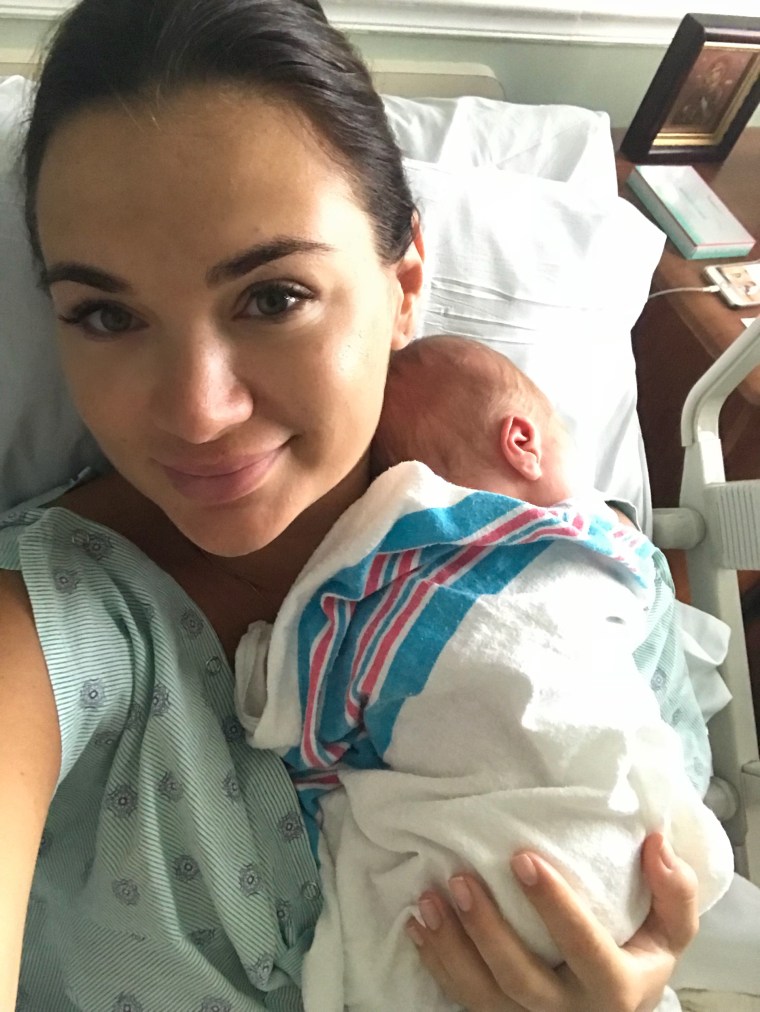
It's not just the Russians who are coming. Chinese moms-to-be have been flocking to Southern California to give birth for years.
What they are doing is completely legal, as long as they don't lie on any immigration or insurance paperwork. In fact, it's protected by the 14th amendment to the U.S. Constitution, which says anyone born on American soil is automatically a citizen.
The child gets a lifelong right to live and work and collect benefits in the U.S. And when they turn 21 they can sponsor their parents' application for an American green card.
As president, Donald Trump has indicated he is opposed to so-called chain migration, which gives U.S. citizens the right to sponsor relatives, because of recent terror attacks. And as a candidate, he called for an end to birthright citizenship, declaring it in one of his first policy papers the "biggest magnet for illegal immigration."
"You have to get rid of it," he said on "Meet the Press" on NBC. "They're having a baby and all of a sudden — nobody knows — the baby is here. You have no choice."
In a twist, as the Daily Beast first reported , condo buildings that bear the Trump name are the most popular for the out-of-town obstetric patients, although the units are subleased from the individual owners and it's not clear if building management is aware.
There is no indication that Trump or the Trump Organization is profiting directly from birth tourism; the company and the White House did not respond to requests for comment.
Roman Bokeria, the state director of the Florida Association of Realtors told NBC News that Trump- branded buildings in the Sunny Isles Beach area north of Miami are particularly popular with the Russian birth tourists and Russian immigrants.
"Sunny Isles beach has a nickname — Little Russia — because people who are moving from Russian-speaking countries to America, they want … a familiar environment."
"They go across the street, they have Russian market, Russian doctor, Russian lawyer," he added. "It's very comfortable for them."
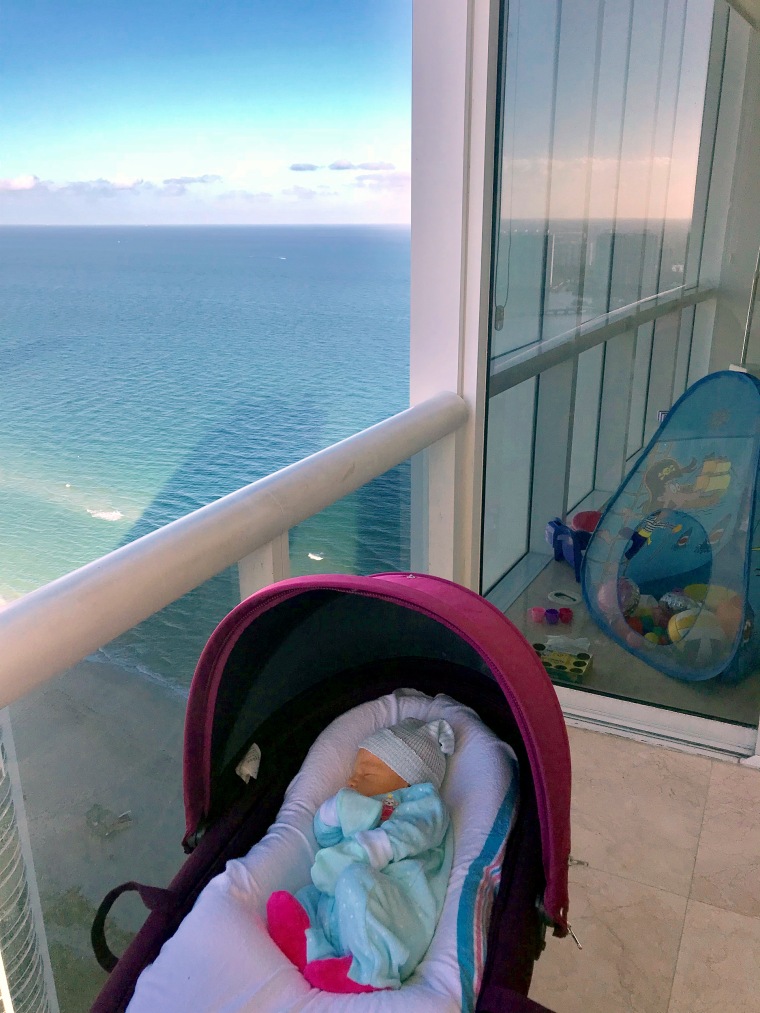
Reshetova came to Miami to have her first child, hiring an agency to help arrange her trip. The services — which can include finding apartments and doctors and obtaining visas — don't come cheap. She expects to pay close to $50,000, and some packages run as high as $100,000. Bokeria says some landlords ask for six months rent up front.
One firm, Miami Mama, says it brings about 100 Russian and Russian-speaking clients to the U.S. per year, 30 percent of them repeat clients. The owners are Irina and Konstantin Lubnevskiy, who bought Miami Mama after using the firm to have two American children themselves.
The couple says they counsel clients to be completely transparent with U.S. immigration officials that they're expecting.
"We tell every client, 'You have the documents, you have to tell the truth. This is America. They like the truth here,'" Konstantin said.
"I would like the American people to understand they don't have to worry," he added. "Those who come here want to become part of the American people."
But Miami Mami has drawn scrutiny from law enforcement. In June, it was raided by the FBI, and an employee was convicted of making false statements on passport applications. The owners say they knew nothing about it, fired the worker and their business license was renewed.
Federal prosecutors declined to comment on the case, and the FBI said it could not discuss "an active investigation."
There is no official data on birth tourism in the United States. The Center for Immigration Studies, which wants stricter limits on immigration, estimates there are 36,000 babies born in the U.S. to foreign nationals a year, though the numbers could be substantially lower. Florida says births in the state by all foreign nationals who live outside the United States have jumped 200 percent since 2000.
Customs and Border Protection says there are no laws governing whether pregnant foreign nationals can enter the country or give birth here.
"However, if a pregnant woman or anyone else uses fraud or deception to obtain a visa or gain admission to the United States, that would constitute a criminal act," the agency said.
When federal agents raided California "maternity hotels" catering to Chinese clients in 2015, authorities said in court papers that some of the families falsely claimed they were indigent and got reduced hospital rates.
In Miami, the Jackson Health System said 72 percent of international maternity patients — who represented 8 percent of all patients giving birth last year — pay with insurance or through a pre-arranged package.
Reshetova said she understands the concerns some have about birth tourism, because it's also an issue in Russia.
"But I pay by myself," she said. "I pay with my money, bring it here to America. I'm not going to take something to America.
"I don't know what my daughter will choose in future. But if I can spend money — my money — for her choice, why not?"
Cynthia McFadden and Sarah Fitzpatrick reported from Miami, and Tracy Connor from New York. Anna Schecter contributed reporting from New York, and Natasha Lebedeva from Washington.
Cynthia McFadden is the senior legal and investigative correspondent for NBC News.
Sarah Fitzpatrick is a senior investigative producer and story editor for NBC News. She previously worked for CBS News and "60 Minutes."
Tracy Connor is a senior writer for NBC News. She started this role in December, 2012. Connor is responsible for reporting and writing breaking news, features and enterprise stories for NBCNews.com. Connor joined NBC News from the New York Daily News, where she was a senior writer covering a broad range of news and supervising the health and immigration beats. Prior to that she was an assistant city editor who oversaw breaking news and the courts and entertainment beats.
Earlier, Connor was a staff writer at the New York Post, United Press International and Brooklyn Paper Publications.
Connor has won numerous awards from journalism organizations including the Deadline Club and the New York Press Club.
She lives in Brooklyn, N.Y.
Anna Schecter is a senior producer in the NBC News Investigations Unit.
- Share full article
Advertisement
Supported by
They Save Baby Seals From Fishing Line and Plastics. Millions Watch.
Ocean Conservation Namibia is disentangling a record number of seals, while broadcasting the perils of marine debris in a largely feel good way.

By Cara Buckley
A group of men sprints across a windswept beach, holding what look like outsize butterfly nets, and close in on a colony of seals trying to escape into the sea.
The pursuers wrestle with their quarry: Seals entangled by fishing gear and other maritime garbage, whose fortunes are about to be reversed. As one man pins down a panicked animal, another cuts away the plastic deeply embedded in its neck. The chase ends with a freed seal triumphantly returning to the ocean.
Ocean Conservation Namibia, a nonprofit group based on the central coast of Namibia, estimates it has rescued around 3,000 seals entangled in marine garbage since 2020. Videos of its rescues posted online became a sensation during the pandemic, suggesting that the group has threaded a tricky needle: calling attention to the growing crisis of marine trash but with a feel-good ending for the affected animals.
“Without a doubt, the numbers that they get there are so much greater than anywhere else in the world,” said Jeff Harris, a research ecologist with the National Oceanic and Atmospheric Administration’s National Marine Mammal Laboratory. Mr. Harris disentangles pinnipeds himself, and said that in his best year he freed 100 California sea lions, tops. “They’re doing that in a month,” he said. “It’s really incredible.”
Ocean Conservation Namibia was founded by Katja and Naude Dreyer, a married couple who were running a kayaking company when, about a dozen years ago, Mr. Dreyer began disentangling some of the estimated million Cape fur seals that live along the country’s coast.
A major seal colony lives on the beaches near Walvis Bay, which is also a major commercial fishing port. Seal pups, inquisitive and playful, are especially drawn to ocean debris, often getting entangled after batting it about. Because seals come onto land, their entanglements are generally easier to spot.
Mr. Dreyer’s early rescues were haphazard and involved him using a paddle to pin down animals or scrambling to grab hold of their back flippers. His Instagram videos of the rescues caught the attention of Mr. Harris, who shipped Mr. Dreyer one of his customized seal rescue nets. It looks like a heavy duty windsock with a zipper, and allows rescuers to cut away fishing wire while keeping a seal’s head, and its razor sharp teeth, safely encased. For Mr. Dreyer, the net was a game changer, and meant that he and his growing team could capture bigger seals. He estimates he saved 600 seals before he and Ms. Dreyer founded their nonprofit four years ago.
When the pandemic shut down tourism, Mr. Dreyer spent more time rescuing animals while Ms. Dreyer worked on their social media posts. In May 2020 one of their videos, “Baby seal thanks his rescuers,” garnered more than a million views.
It was a turning point.
“In Covid times, with so much political and emotional turmoil all over the world, people were finding comfort and happiness watching videos of animals getting rescued,” Mr. Dreyer said. The group’s many videos have now been viewed tens of millions of times, all of them subtly hammering home the message that the ocean is awash in trash.
There are an estimated 21,000 pieces of plastic in the oceans for every person on the planet, with marine plastic killing an estimated 100,000 sea mammals a year. Discarded fishing gear accounts for about 10 percent of marine debris, with up to one million tons of lines, nets and ropes lost or tossed into the oceans each year. The United Nations has been leading negotiations among countries aimed at finalizing a groundbreaking and legally binding treaty to curb plastic waste by the end of 2024.
Julie Andersen, founder and chief executive of Plastic Oceans International, a nonprofit organization that made a documentary about Ocean Conservation Namibia called “Cutting the Line,” said the global fishing industry needs to be held more responsible for its discarded waste.
“You need local remediation efforts, but it’s endless without simultaneously addressing mitigation efforts on a global scale,” Ms. Andersen said.
Funded by donations, Ocean Conservation Namibia now has a team of seven, and is registered as a nonprofit in the United States. The Dreyers have also stopped eating fish and other animal products. “After starting this journey, Katja and I found it very hypocritical to spend so much time saving animals, only to go home and eat other animals,” Mr. Dreyer said in an email. “It just doesn’t make sense.”
Several times a week, Mr. Dreyer and his team head for the beach before sunrise. Cape fur seals give birth starting in November, but newborns cannot swim until they are about six weeks old, so the rescuers wait until then, to avoid driving hapless pups into the sea. The group carefully searches for entangled animals, plots its approach, and then races toward them, all the while dodging fleeing seals, and sometimes getting bitten. It’s tricky, intense work, captured with breathtaking immediacy on GoPro cameras that rescuers have strapped to their heads, or, in the case of Mr. Dreyer, held with a mouth mount.
Videos of the rescues show a heartbreaking tableaux of the damage wrought by marine debris.
There are seals ensnared in gill nets, plastic bags, ropes, a metal kitchen strainer, bands of cling wrap, packaging straps, thick shark fishing wire, steel cables, bungee cords, plastic straps from hard hats, and miles of fishing line around their necks, jaws, snouts and mouths. There are scenes of fishing hooks caught in seal’s eyelids. Sometimes fishing wire is so deeply embedded that the flesh has grown around it, forcing rescuers to reopen wounds to extract the wire. Other seals are entangled together, and sometimes a live seal is bound to another that’s already dead.
The group has rescued as many as 34 seals in a day, the biggest being a bull that was estimated to weigh 510 pounds. But most of the animals that get entangled are pups.
“Ooh,” a rescuer groaned in one video, pulling out a bolt cutter to cut away a blue plastic spool that was stuck fast around a young seal’s neck. “Sorry, sorry, sorry,” the rescuer said, as he tugged away the spool, revealing bloodied infected flesh.
In another video, a young seal was fully encased in the leg of torn disposable overalls that had compressed its neck, and forced its mouth permanently open. “Buddy, life’s going to get so much better,” Mr. Dreyer said, after pulling the seal free.
One benefit of newly freed seals racing into the sea is that the salt water helps to heal their wounds, Mr. Dreyer said. The group photographs the marine debris for a n open source database, logs other details such as the severity of wounds and entrapped animals’ locations, and is routinely called to help other entangled or otherwise imperiled animals, among them whales, dolphins, sharks, turtles and seabirds.
In a sign the Dreyers take as progress, sometimes security guards at fishing docks call in reports of entangled seals, which is notable in a place where, with government approval, seals are culled by the tens of thousands each year, because they’re viewed as major competitors for fish.
Still, said Ms. Dreyer, “Nobody likes to see them suffering because of all the plastic.”
Cara Buckley is a reporter on the climate team at The Times who focuses on people working toward climate solutions. More about Cara Buckley
Learn More About Climate Change
Have questions about climate change? Our F.A.Q. will tackle your climate questions, big and small .
”Buying Time,” a new series from The New York Times, looks at the risky ways humans are starting to manipulate nature to fight climate change.
Ocean Conservation Namibia is disentangling a record number of seals, while broadcasting the perils of marine debris in a largely feel-good way. Here’s how .
To decarbonize the electrical grid, companies are finding creative ways to store energy during periods of low demand in carbon dioxide storage balloons .
New satellite-based research reveals how land along the East Coast is slumping into the ocean, compounding the danger from global sea level rise . A major culprit: the overpumping of groundwater.
Did you know the ♻ symbol doesn’t mean something is actually recyclable ? Read on about how we got here, and what can be done.

IMAGES
VIDEO
COMMENTS
When it comes to determining a child's citizenship at birth, countries usually apply one of two rights: jus soli (right of soil) or jus sanguinis (right of blood). Jus soli grants citizenship merely on the basis of being born "on the soil" of the country in question. Jus sanguinis determines the child's citizenship based on the parents ...
Birth tourism is the practice of traveling to another country or city for the purpose of giving birth in that country. The main reason for birth tourism is to obtain citizenship for the child in a country with birthright citizenship ( jus soli ). [1] Such a child is sometimes called an "anchor baby" if their citizenship is intended to help ...
Babies born in the US have the right to declare their American citizenship at age 18, and apply for green cards for their families when they turn 21. ... The birth tourism world underwent major ...
Having a baby, even via surrogate in the U.S., ... Lily is doing what the industry calls a DIY — do-it-yourself — birth tourism experience; renting her own house and hiring a full-time nanny ...
Women travelling to Canada to give birth to babies who will automatically become Canadian citizens are prompting concerns about the strain they may be putting on the health-care system, The Fifth ...
What is birth tourism? As the name suggests, birth tourism is the action of travelling to a different destination for the purpose of giving birth. There are various reasons as to why pregnant people decide to take this course of action, which I will go into below. It is not a new phenomenon, nor is it something which people are particularly ...
The Center for Immigration Studies, a conservative-leaning think tank, estimates that nearly 36,000 Chinese nationals give birth in the U.S. each year, but "that's just a guess," said ...
No official data is available for how many birth tourism babies are born in the US. The State Department has said only that "thousands of children" are born in the county each year to people ...
"Birth tourism may be legal, ... Birth tourism at Richmond Hospital recently came under the spotlight because of a so-called "million dollar baby." A nonresident, Yan Xia, gave birth there ...
Giving birth in the U.S. on a tourist visa can have certain legal consequences for both mother and child. 1. Legal Implications For The Mother. Giving birth in the U.S. on a tourist visa does not automatically grant you the right to stay in the country based on the birth of your child. Your visa status remains unchanged and you will be ...
Birth tourism is rising again post-pandemic. The government needs to get serious about better understanding the extent of non-resident births and consider amendments to the Citizenship Act. The COVID-19 pandemic provided the perfect natural experiment to assess the extent of birth tourism in Canada. Dramatic declines of 50 per cent compared ...
Chile is also a fairly desirable location for birth tourism, as its economy is robust and growing, and its passport is fairly powerful. However, as of 2019, they require at least one parent to be a legal resident. Panama is another excellent country for birth tourism, as they have high-quality hospitals, and a great economy and they allow ...
The group estimates there are anywhere between 35,000 to hundreds of thousands of birth tourism births every year in the United States. The U.S. is one of only 35 countries in the world that ...
With a Mexican passport, one can have access to almost 140 countries. 3. Brazil - provides affordable costs of birth for tourists and strict jus soli. Parents can easily obtain a residency as well. Brazil offers access to approximately 150 countries. 4. Canada - acts on jus soli. The passport gives access to 190 countries visa-free countries.
What's this about birth tourism? "Anchor baby" rhetoric has, historically, referred to children born to long-term unauthorized residents of the United States, typically immigrants from Mexico or ...
On Wednesday, prosecutors charged six people with running the "birth tourism" operation on Long Island, which facilitated the births of an estimated 119 babies to Turkish women since at least ...
Published 1:03 PM PDT, January 23, 2020. WASHINGTON (AP) — The Trump administration is imposing new visa rules aimed at restricting "birth tourism," in which women travel to the United States to give birth so their children can have U.S. citizenship. The regulations, which take effect Friday, address one of President Donald Trump's main ...
Birth tourism is a term which refers to the practice of foreign mothers-to-be traveling to the United States on tourist visas for the specific purpose of giving birth in the U.S. in order to obtain U.S. citizenship for their child. ... It is estimated that 33,000 babies are born to women who arrived on tourist visas every year. While this may ...
By obtaining a child's US citizenship through "birth tourism," foreign nationals are able to help that child "avoid the scrutiny, standards, and procedures" would normally be undergone ...
Ms. Li was arrested on Thursday, along with the operators of USA Happy Baby, another agency associated with birth tourism, according to the indictment: Michael Wei Yueh Liu, of Rancho Cucamonga ...
But within days of Baby M's birth in 1986, Whitehead changed her mind, eventually fleeing with the child to Florida. ... but due to exploitation of their women caused by surrogacy tourism, they ...
Trump said his order would also end the practice of so-called birth tourism, "where hundreds of thousands of people from all over the planet squat in hotels for their last few weeks of pregnancy ...
By Cynthia McFadden, Sarah Fitzpatrick, Tracy Connor and Anna Schecter. MIAMI — Lured by the charm of little Havana or the glamour of South Beach, some 15 million tourists visit Miami every year ...
A 2019 study found that about 1 in 1,000 babies were born ... to permit a non-binary designation on birth ... stay, which is giving rise to sleep tourism. World News // 21 hours ago. ...
When the pandemic shut down tourism, Mr. Dreyer spent more time rescuing animals while Ms. Dreyer worked on their social media posts. In May 2020 one of their videos, "Baby seal thanks his ...